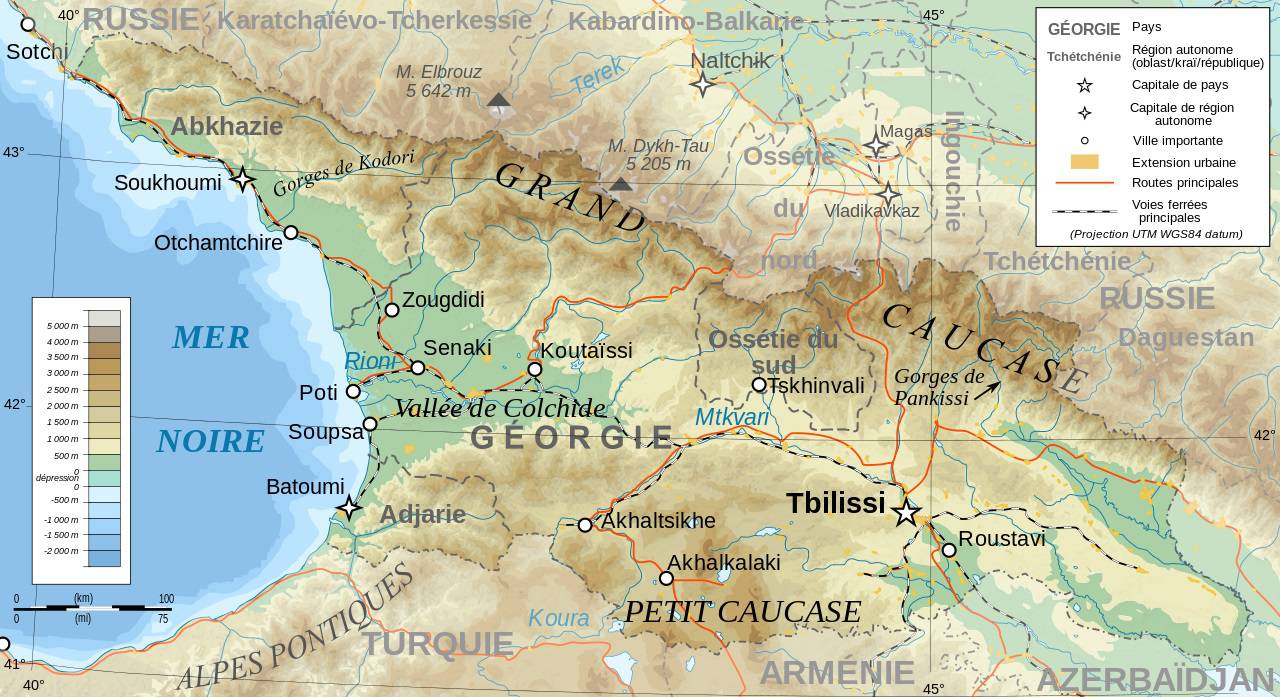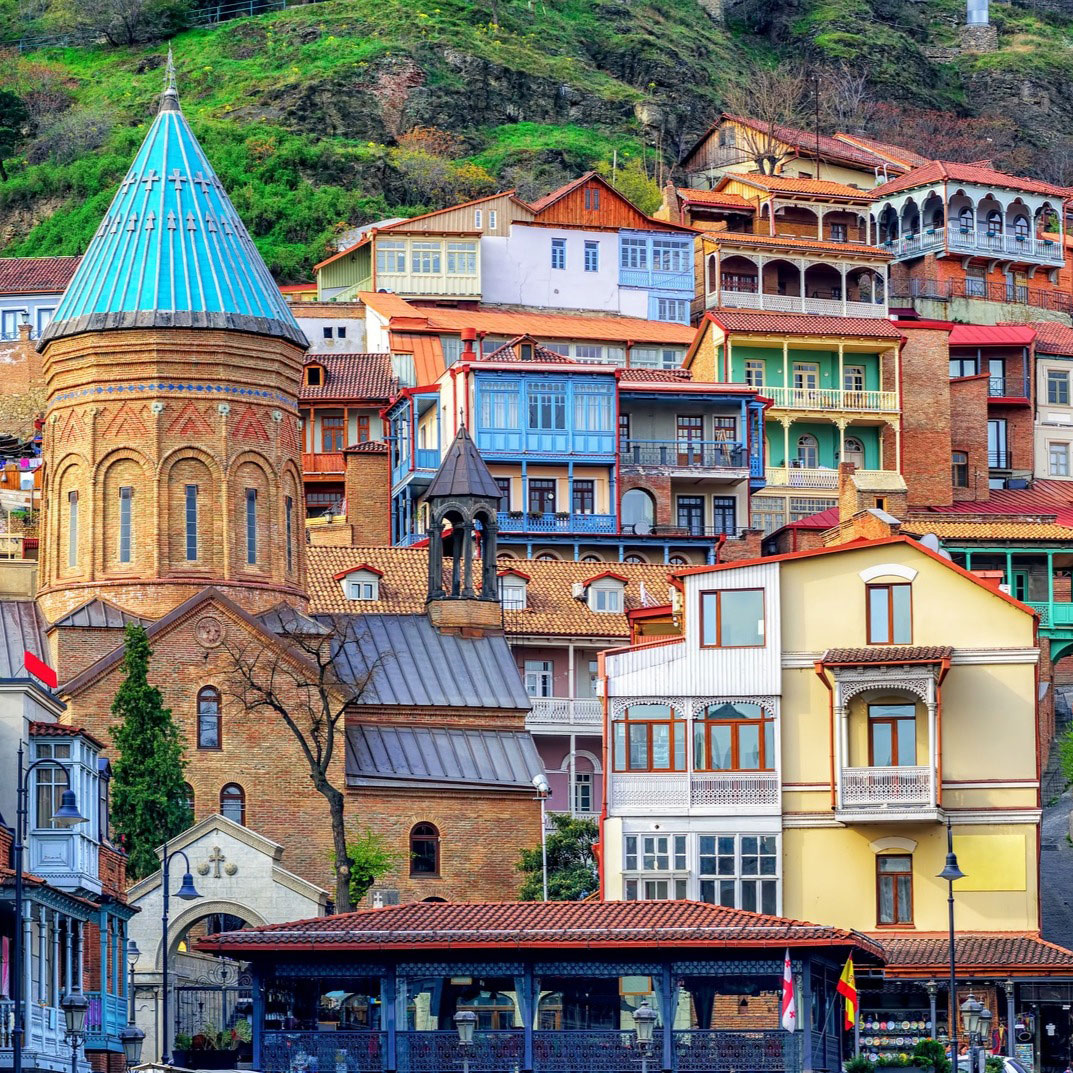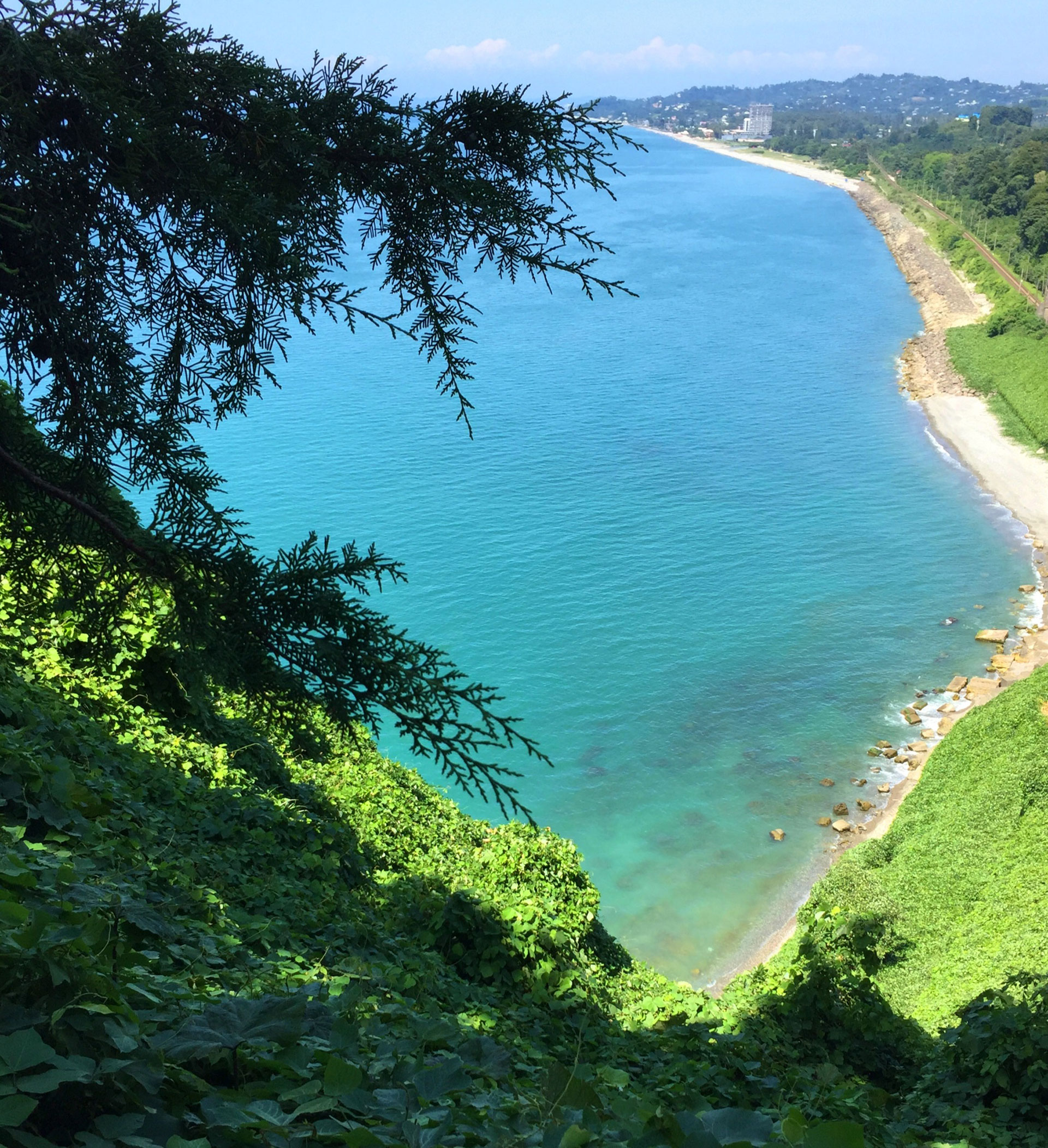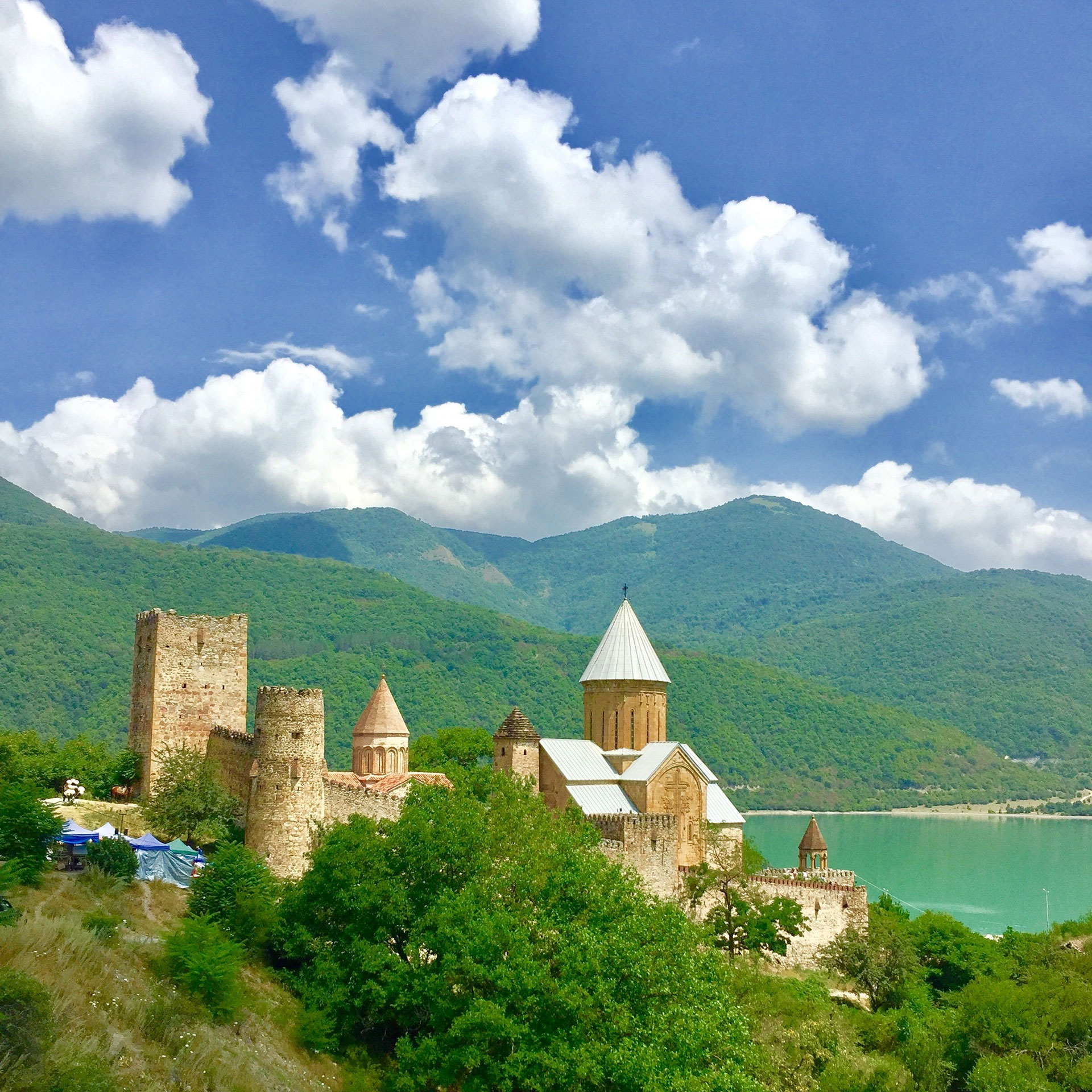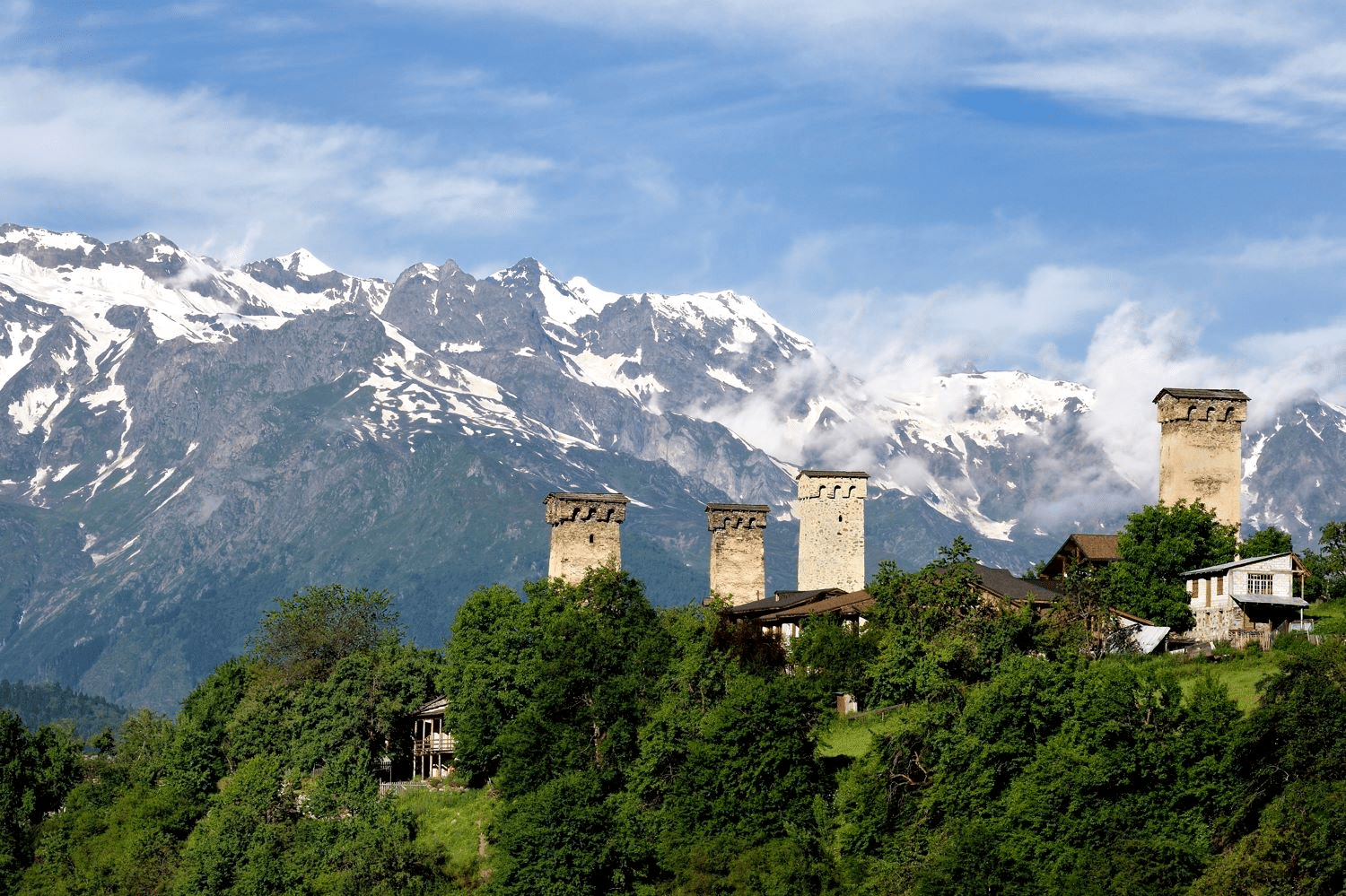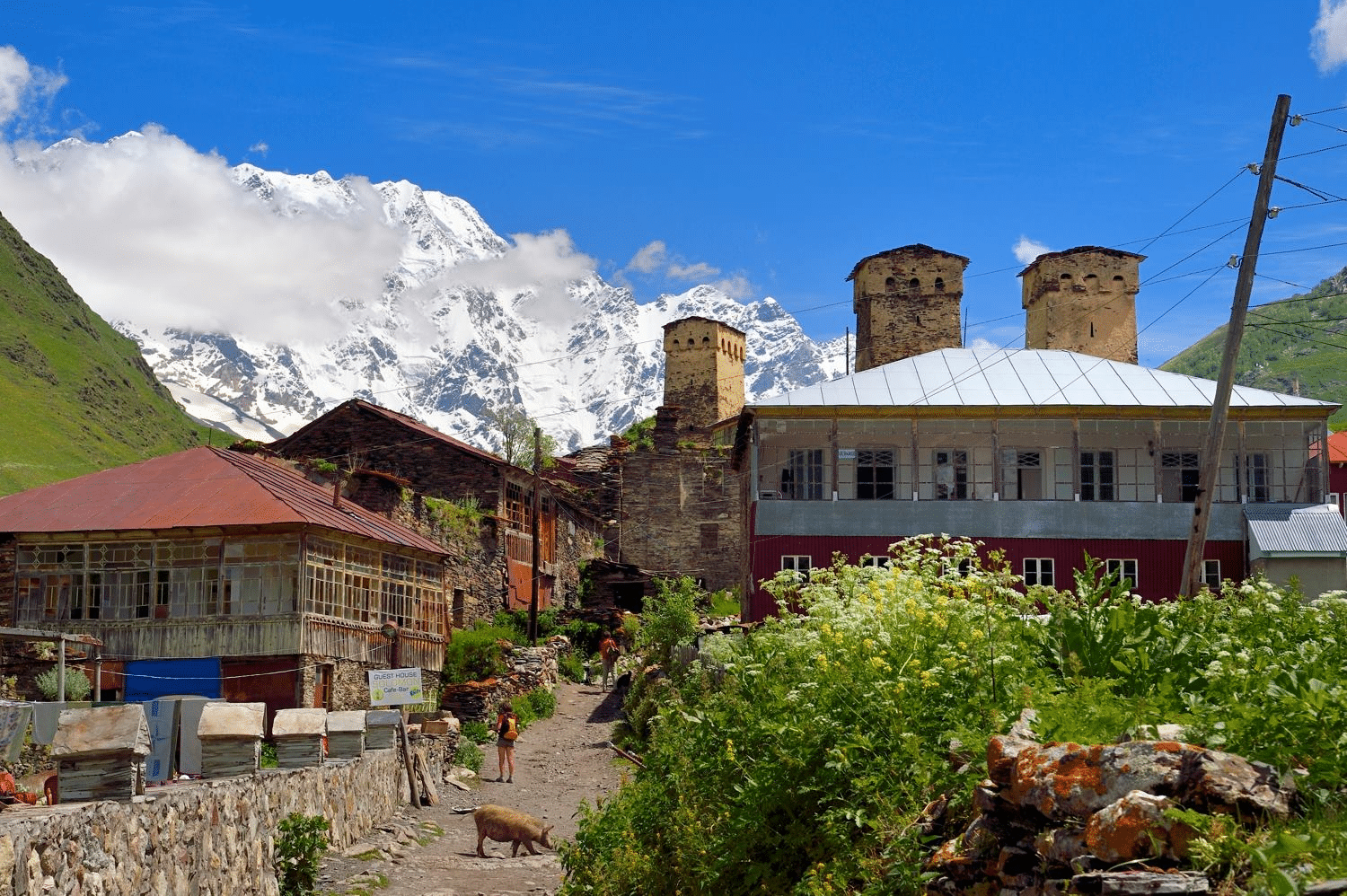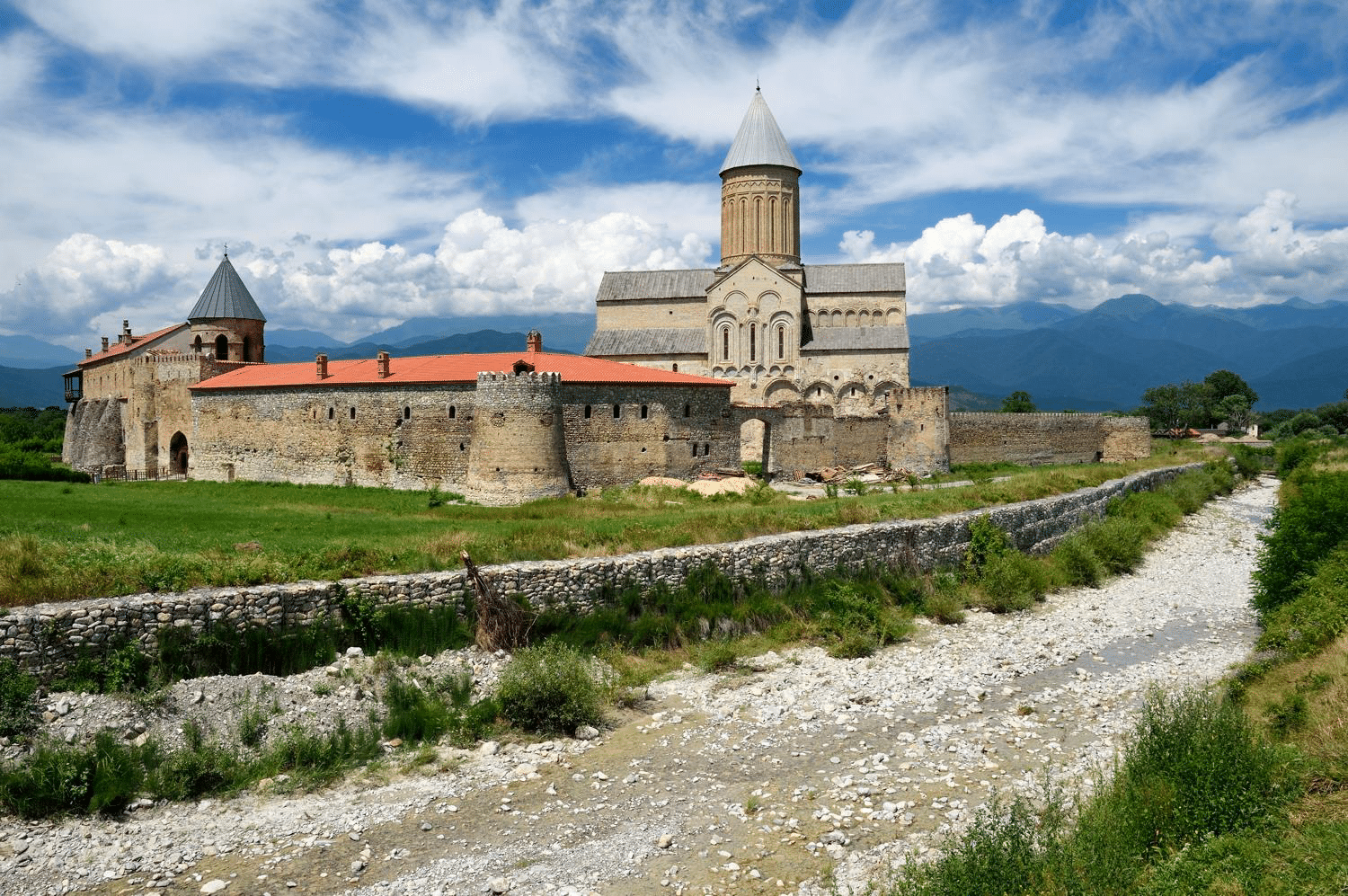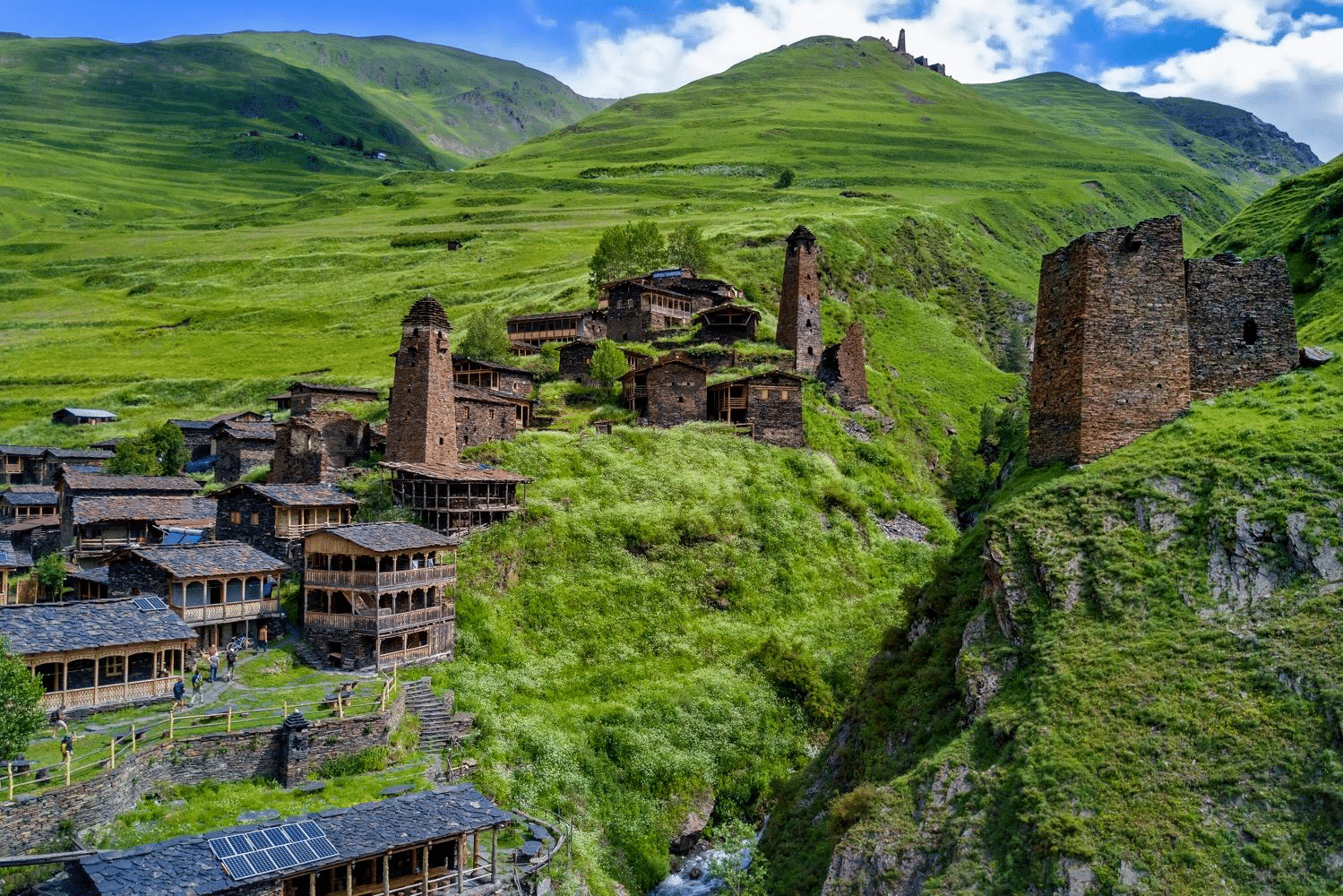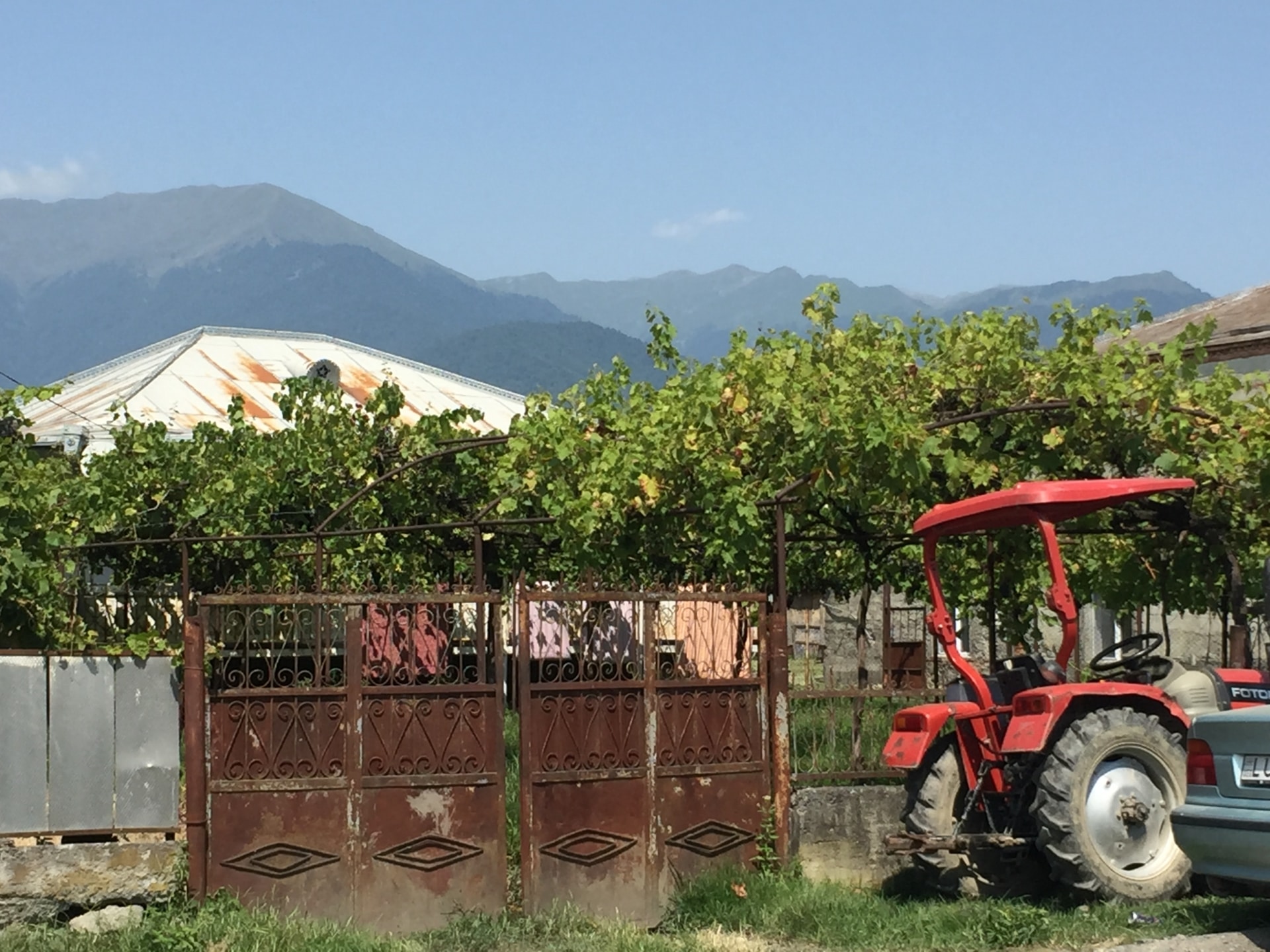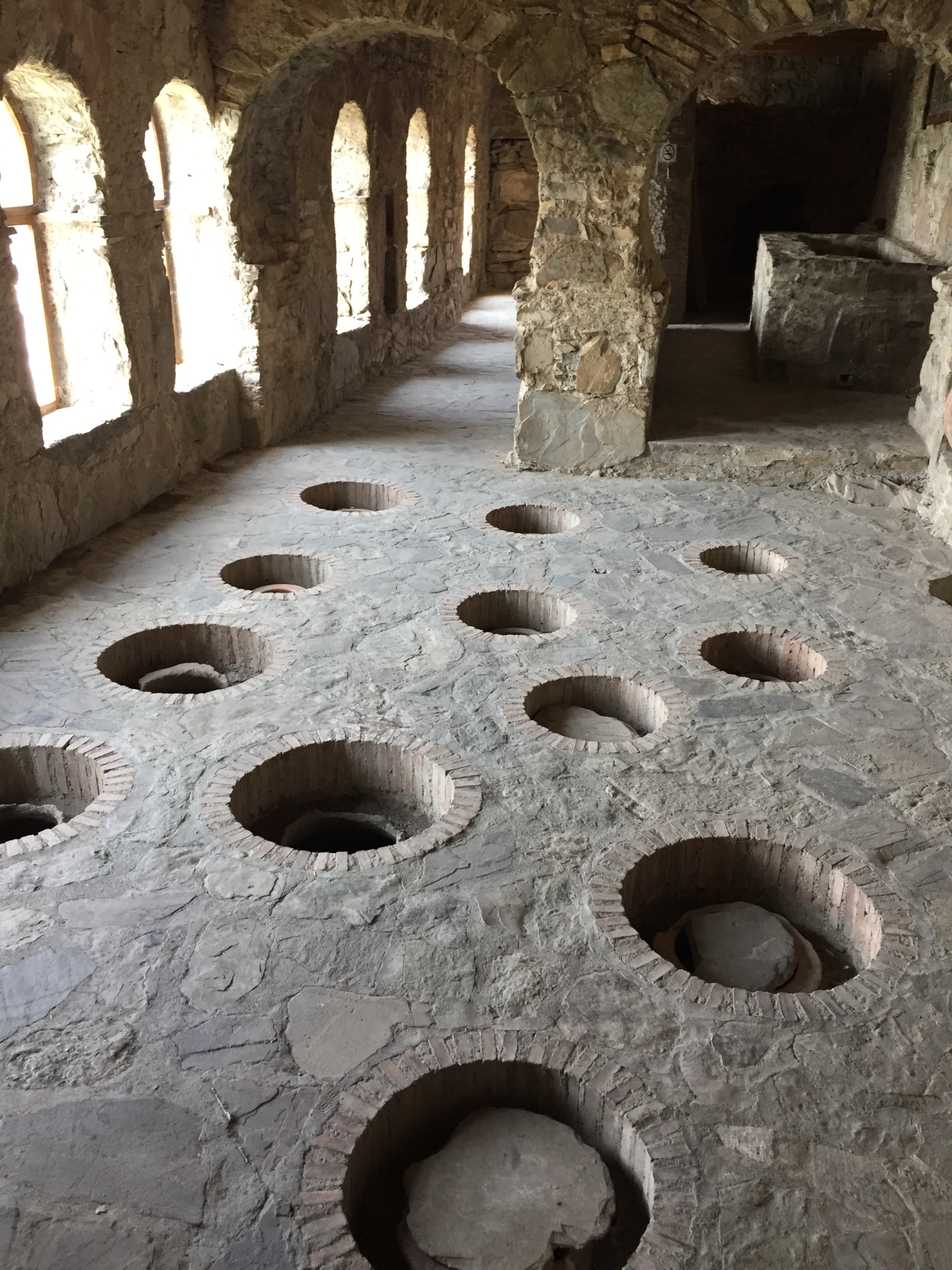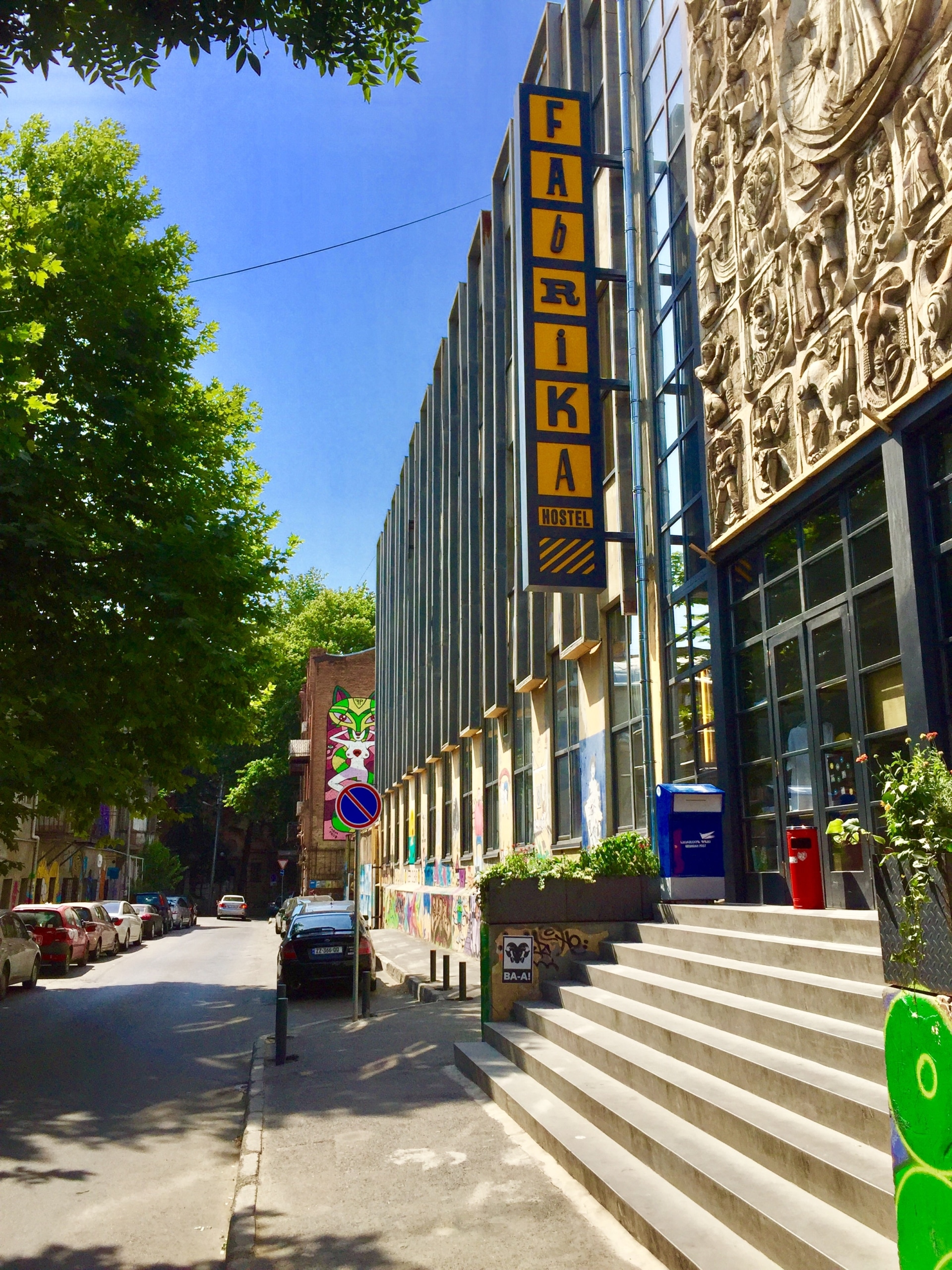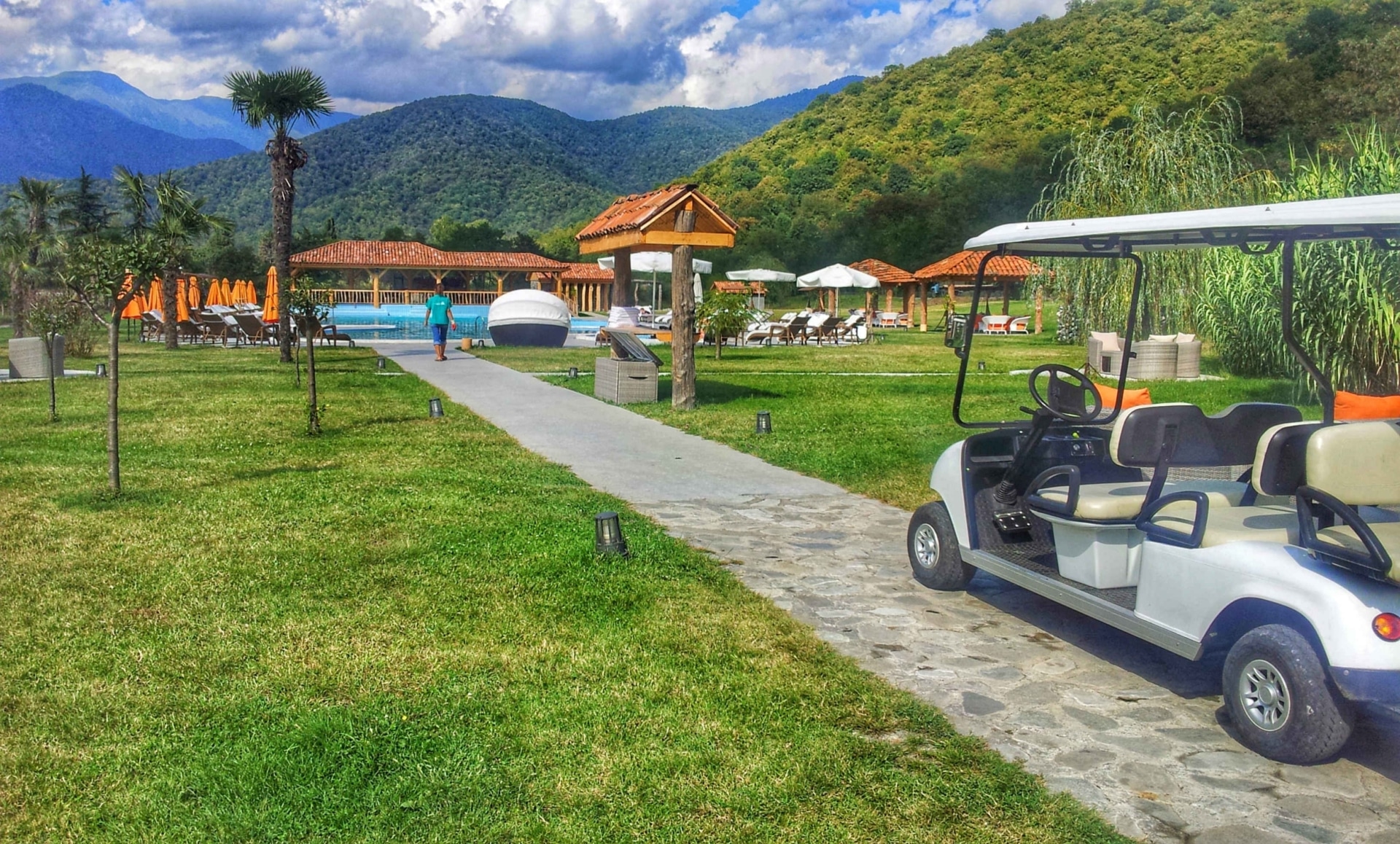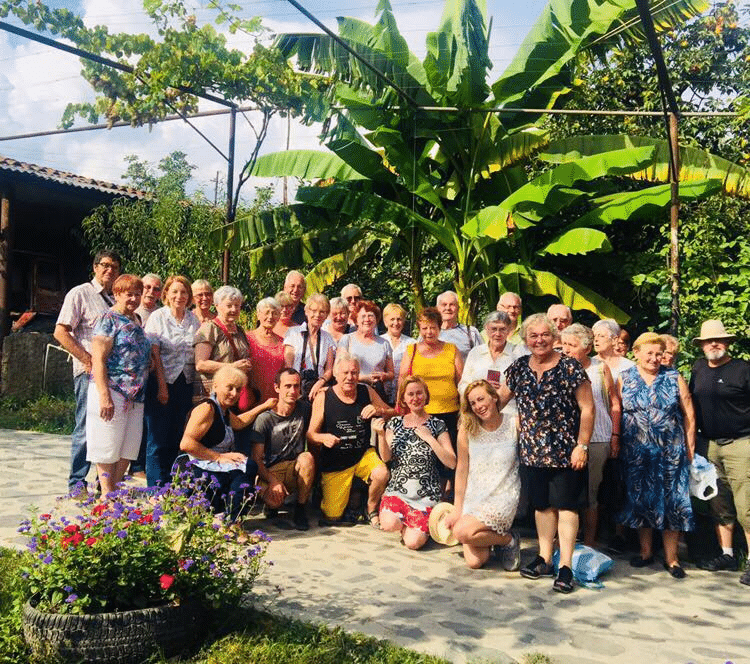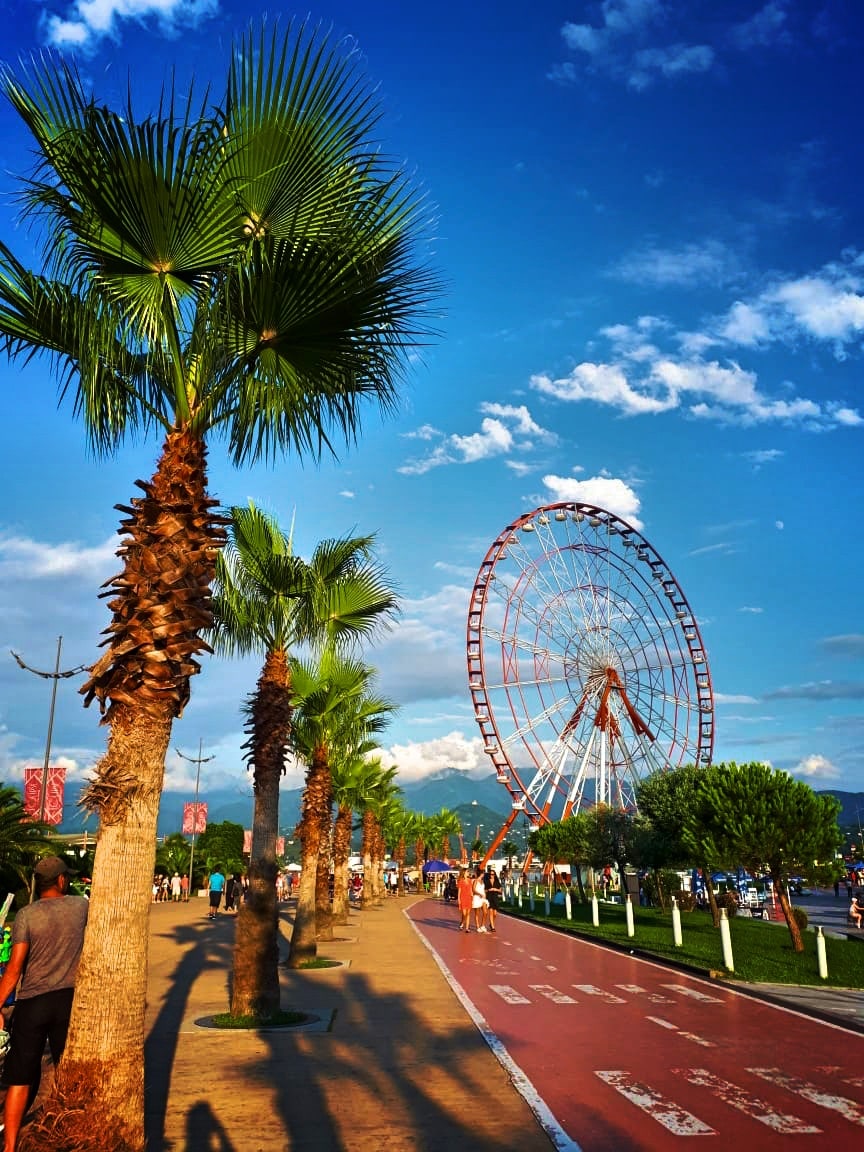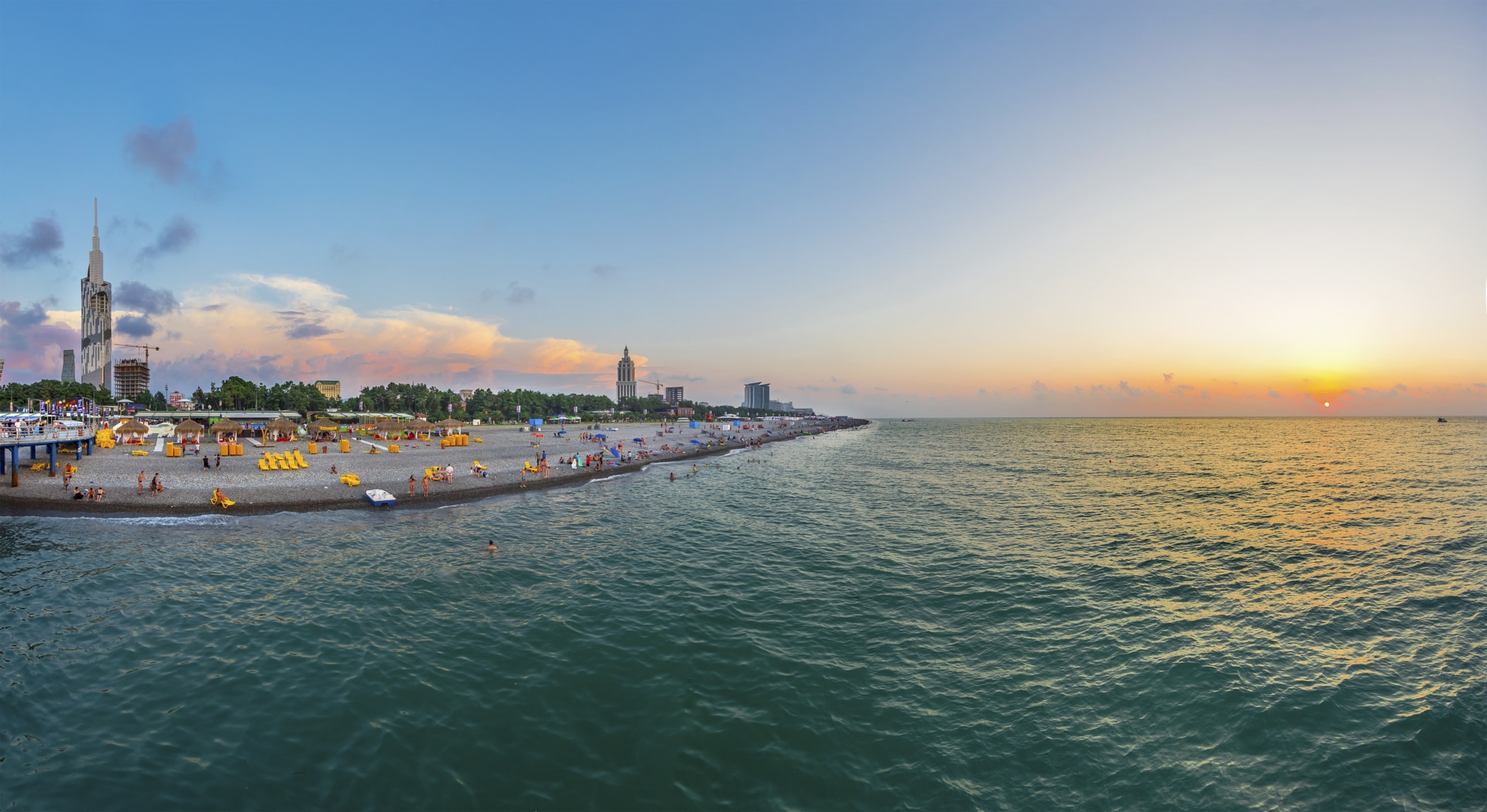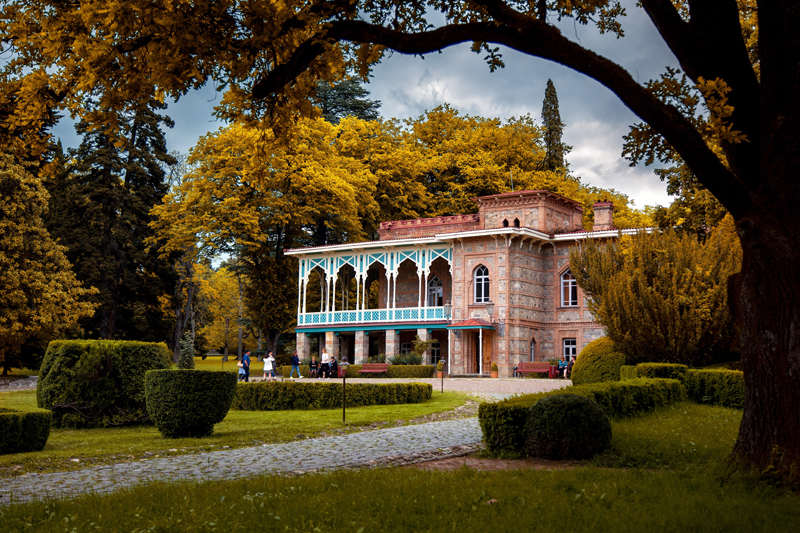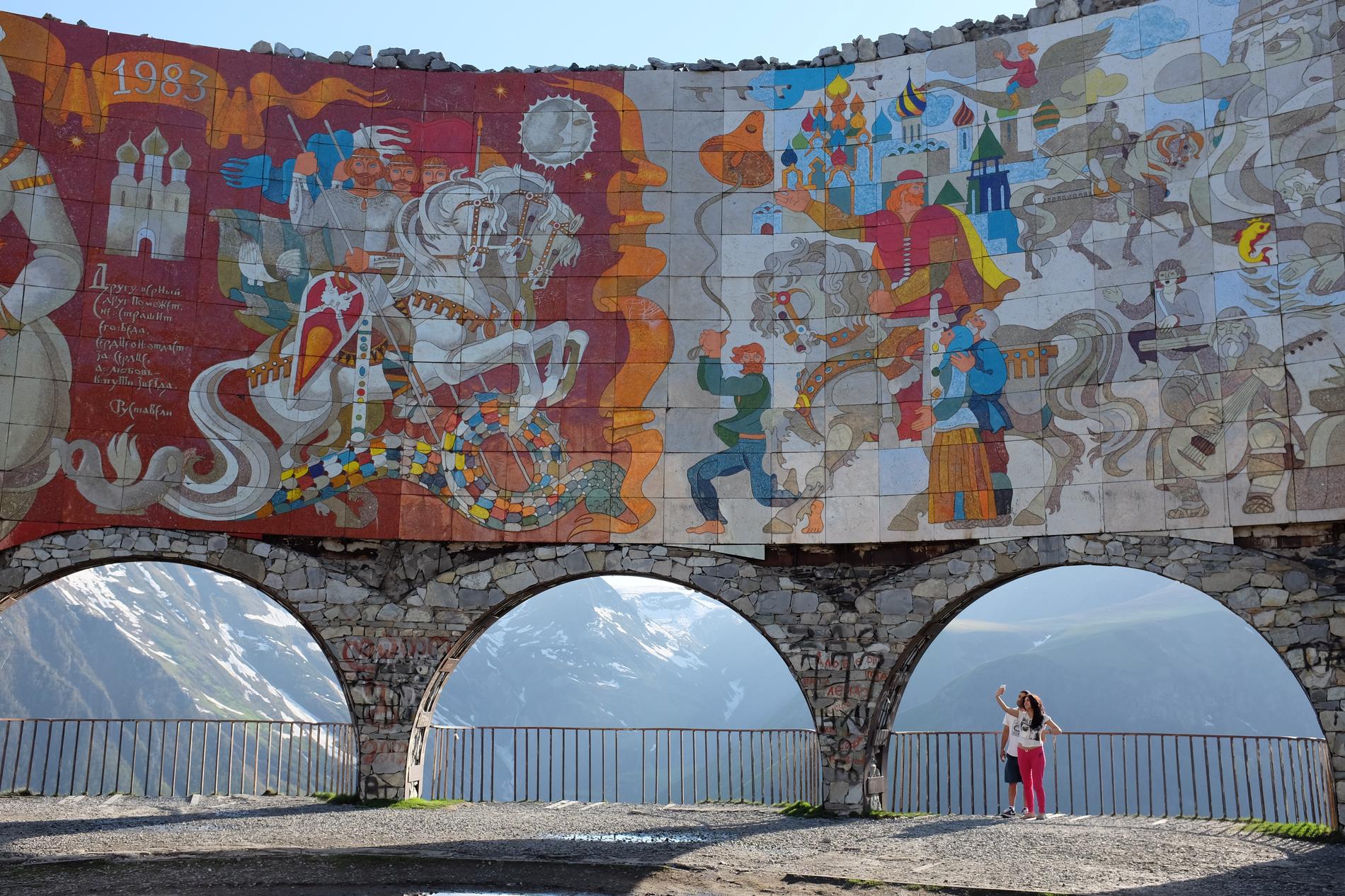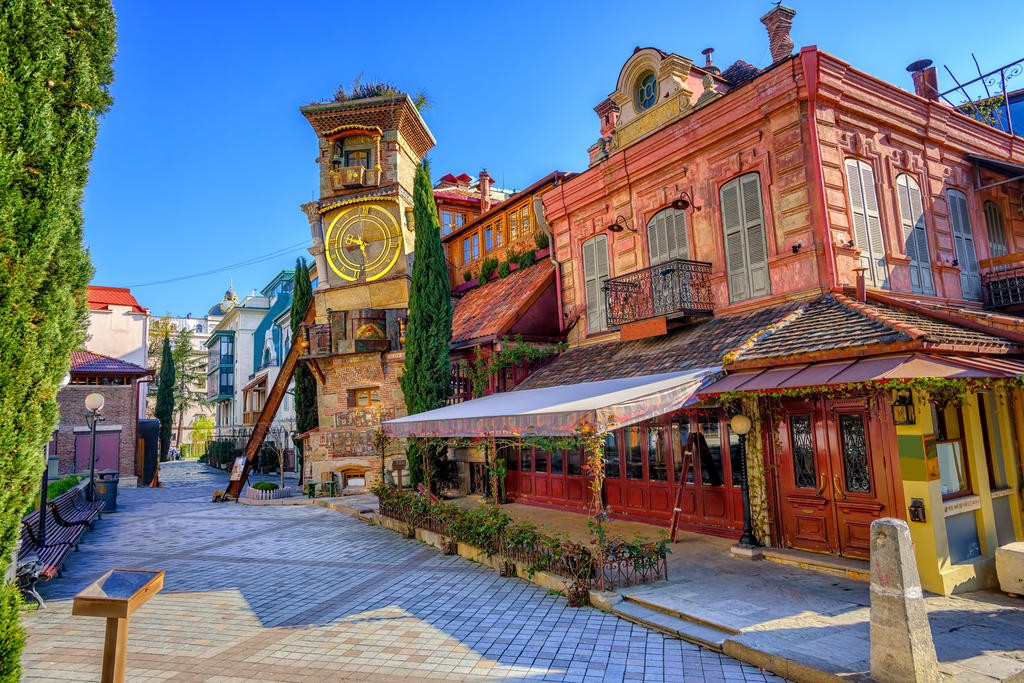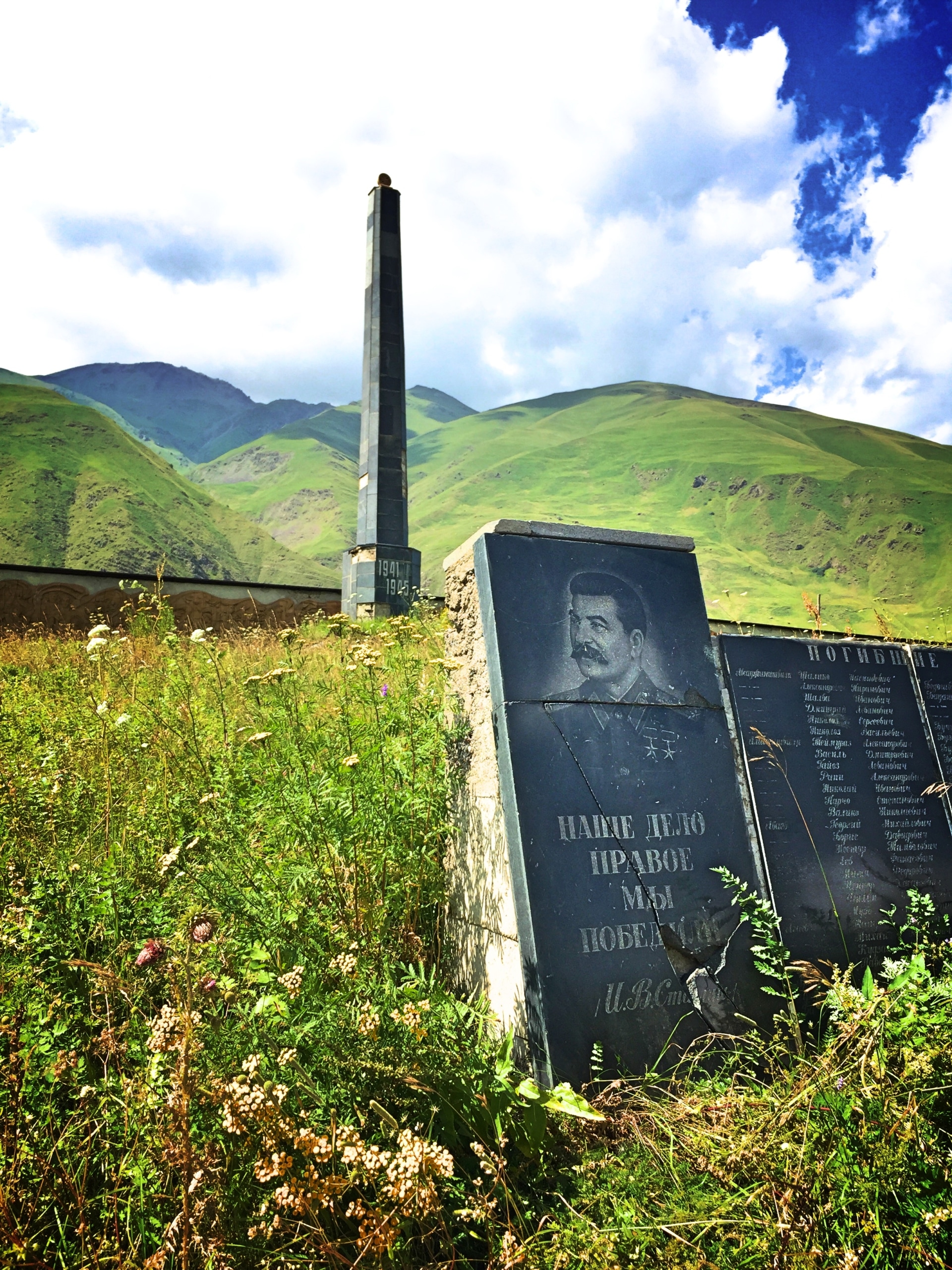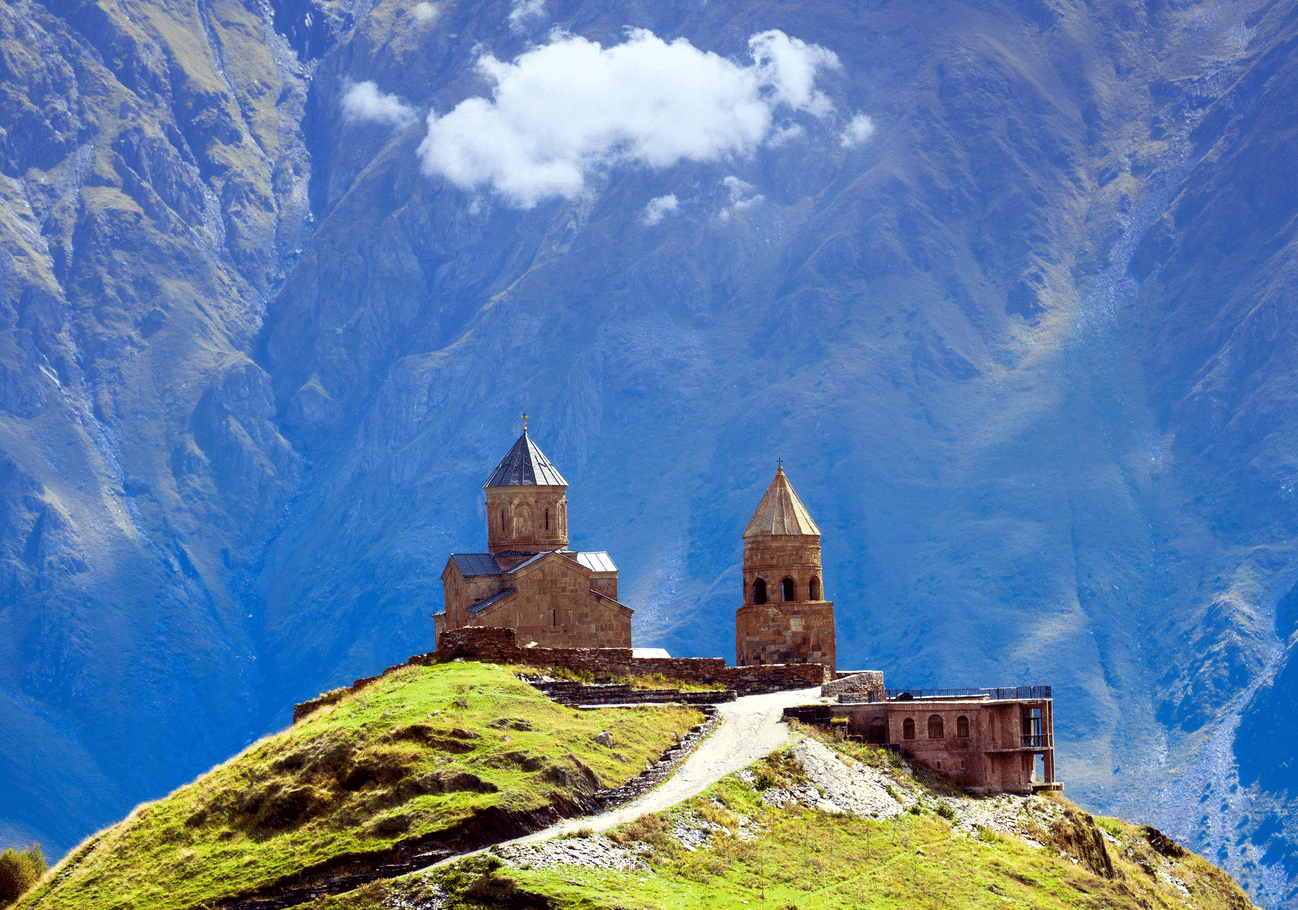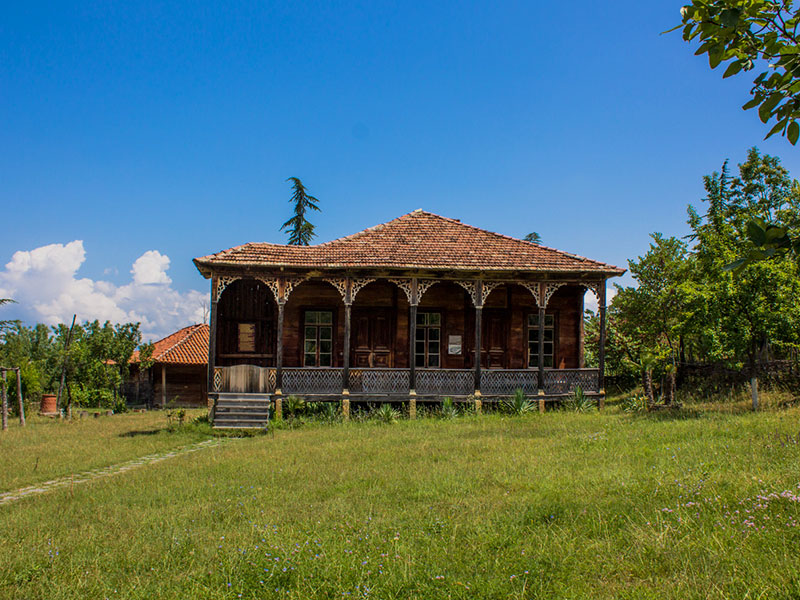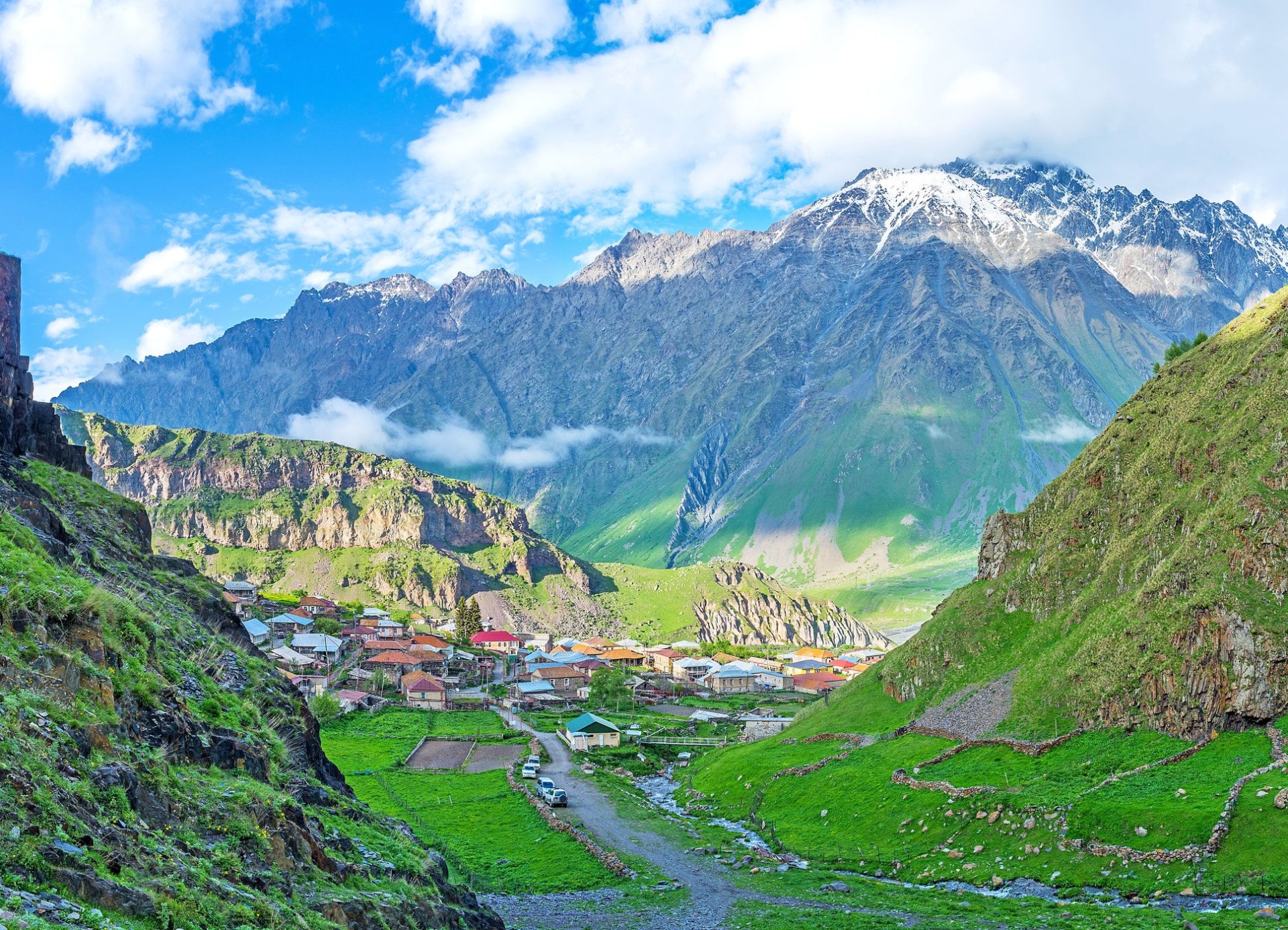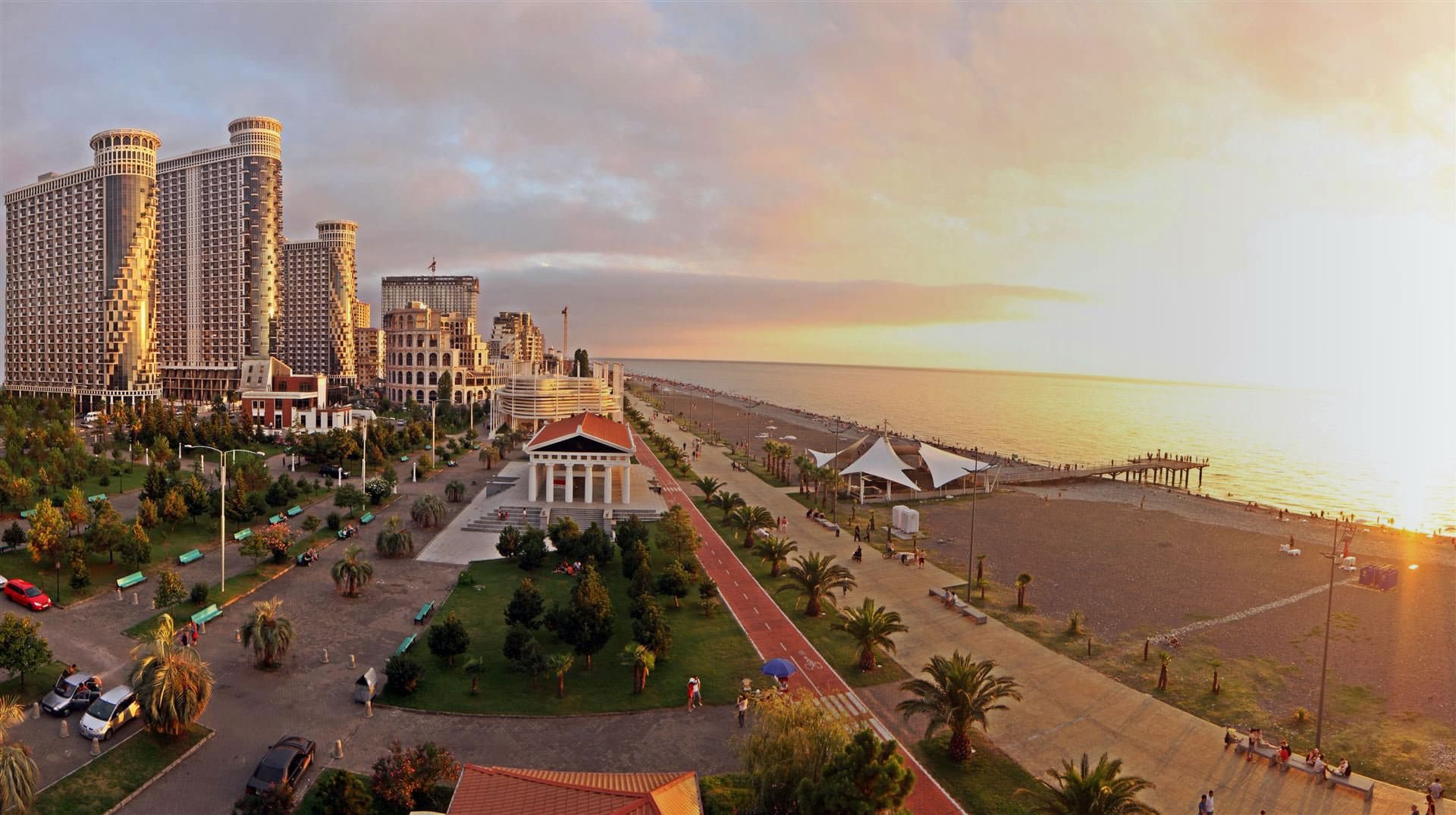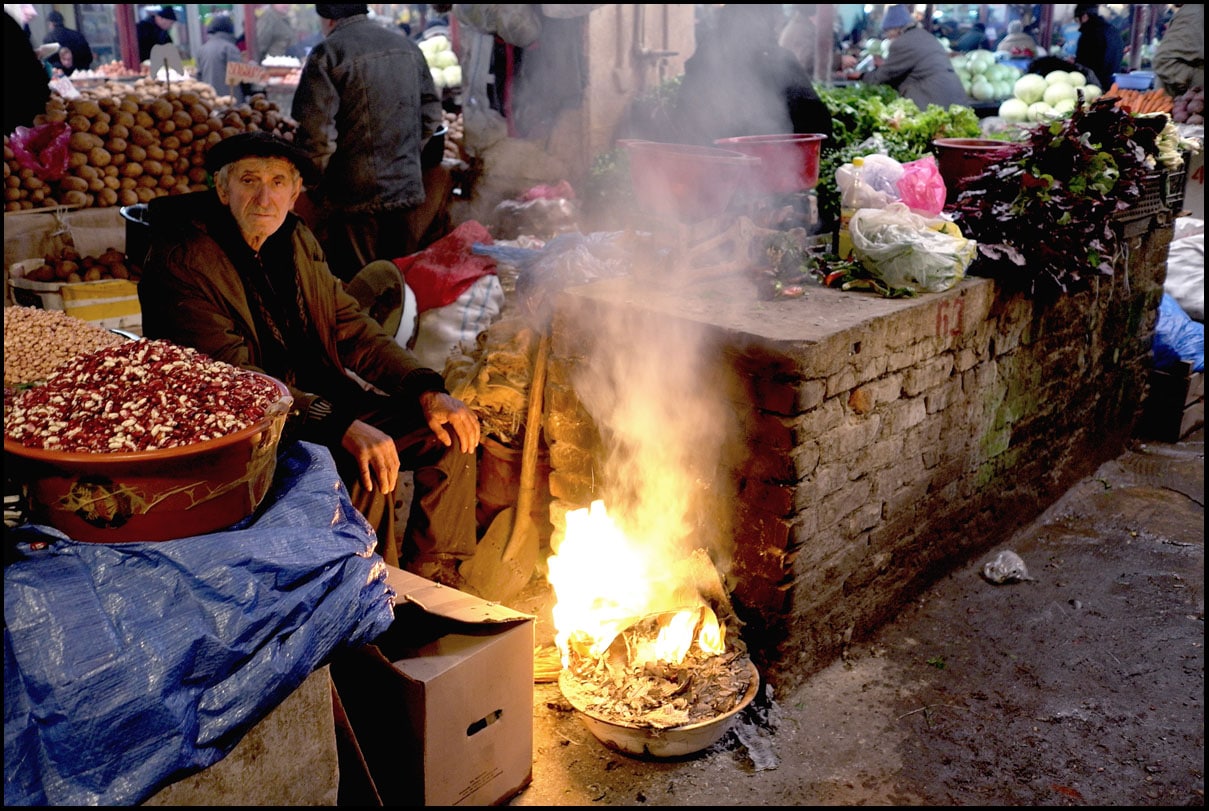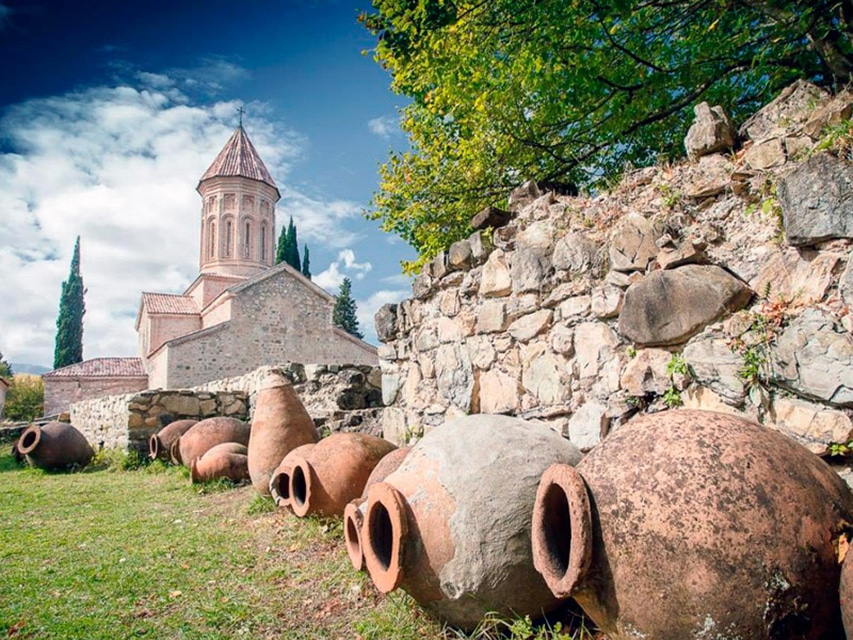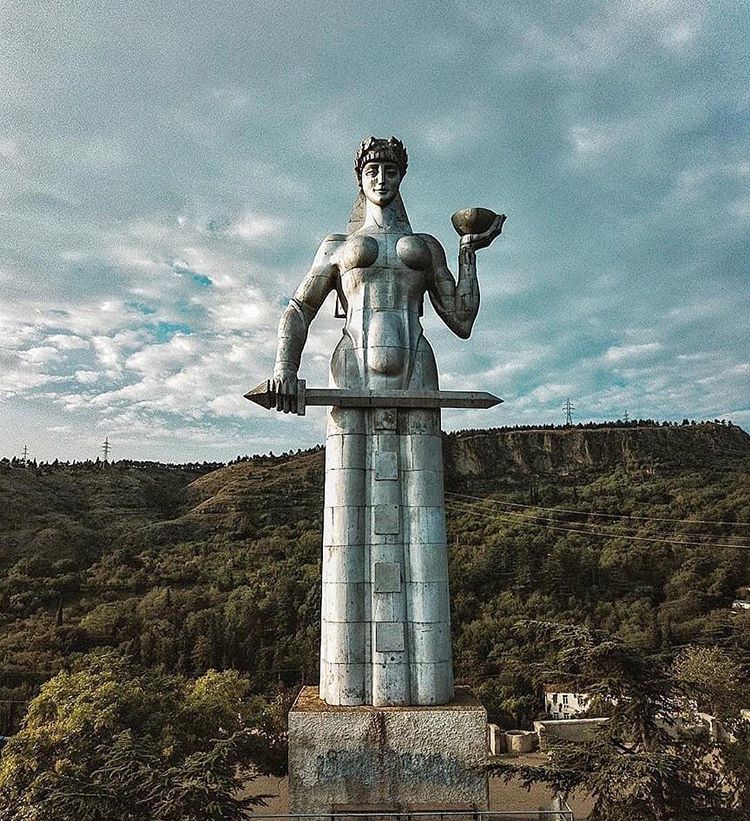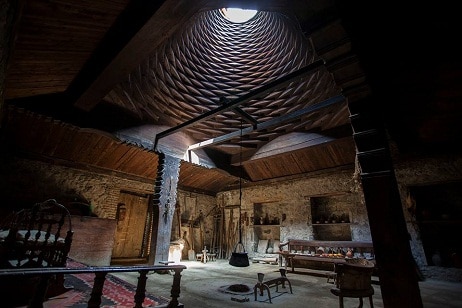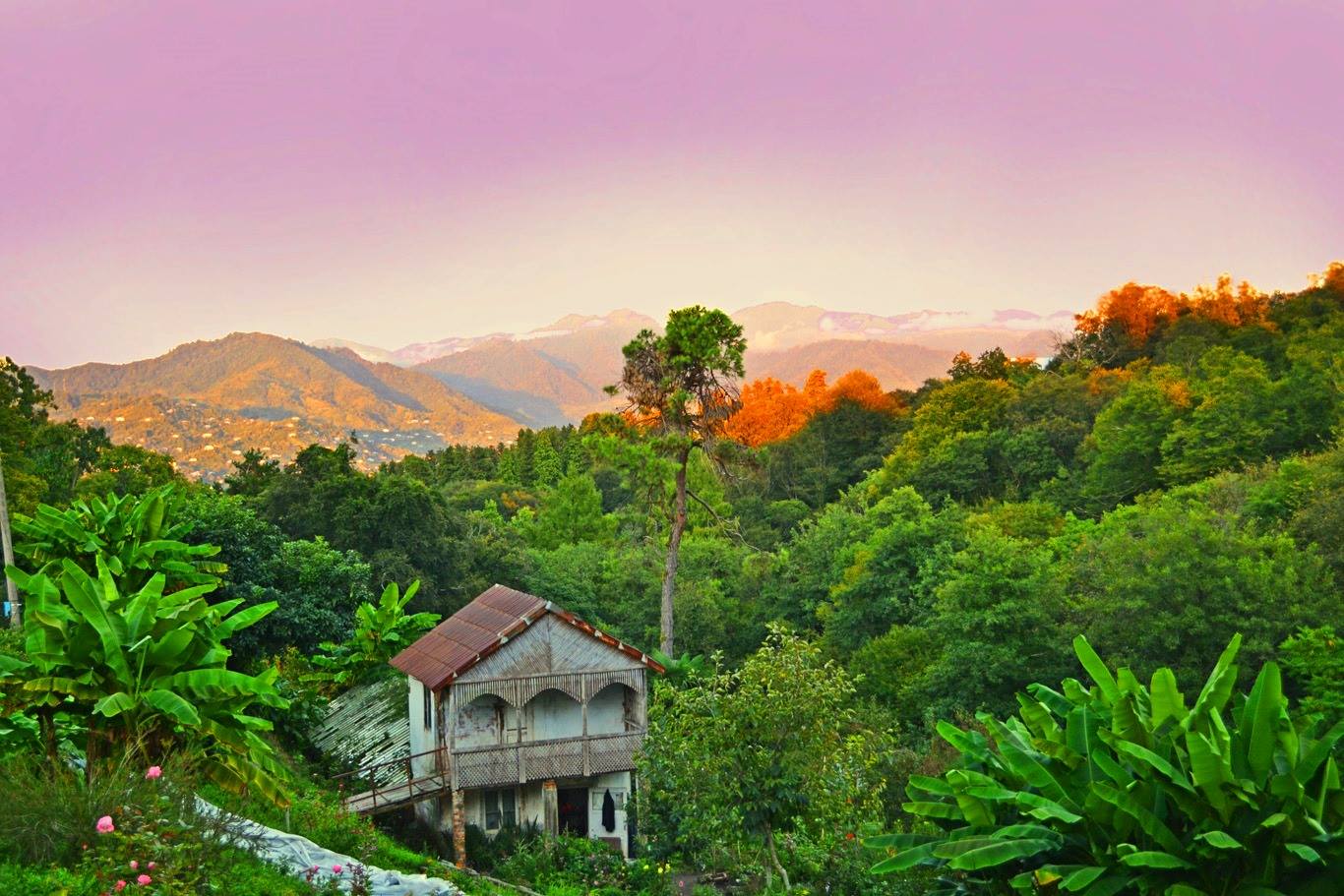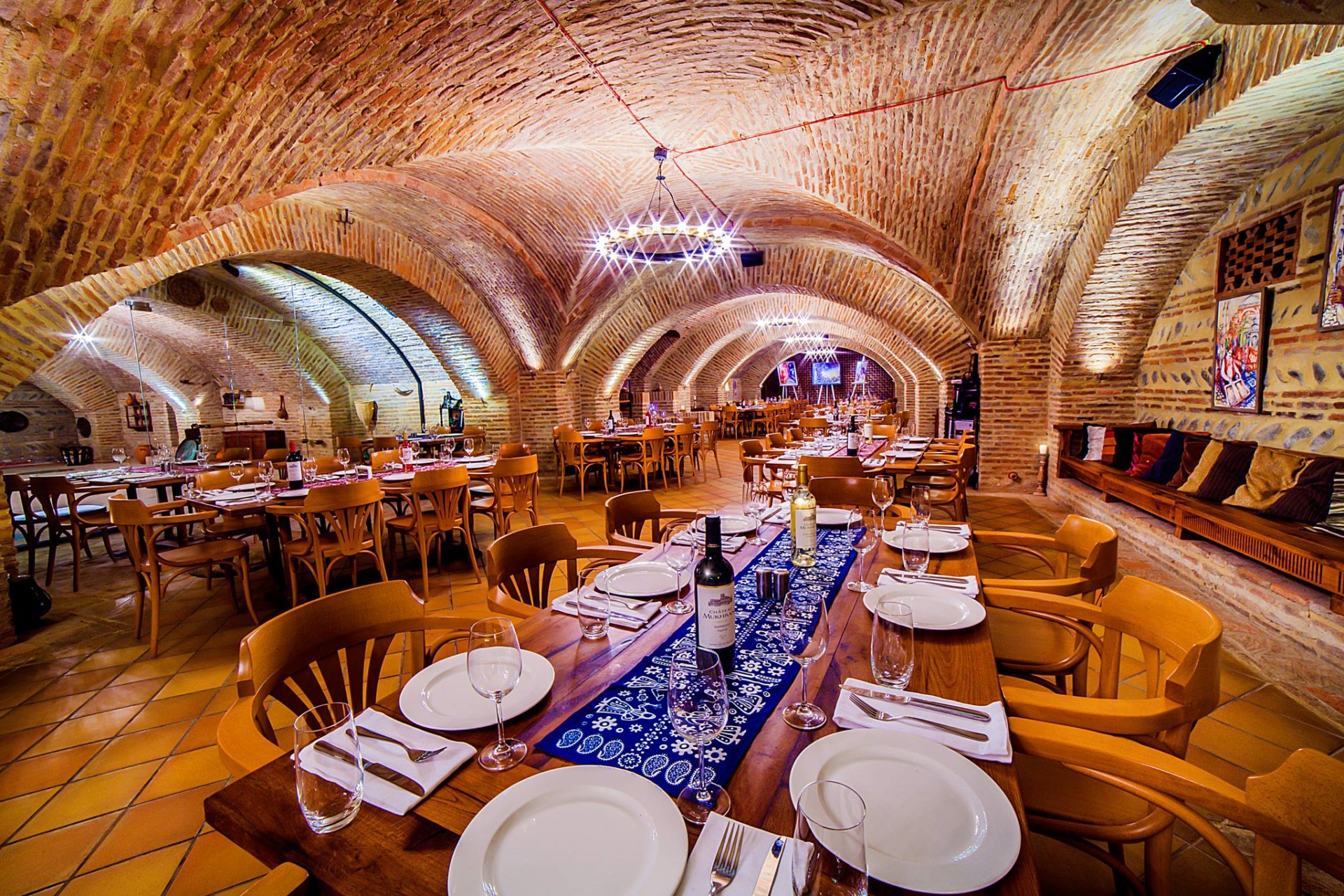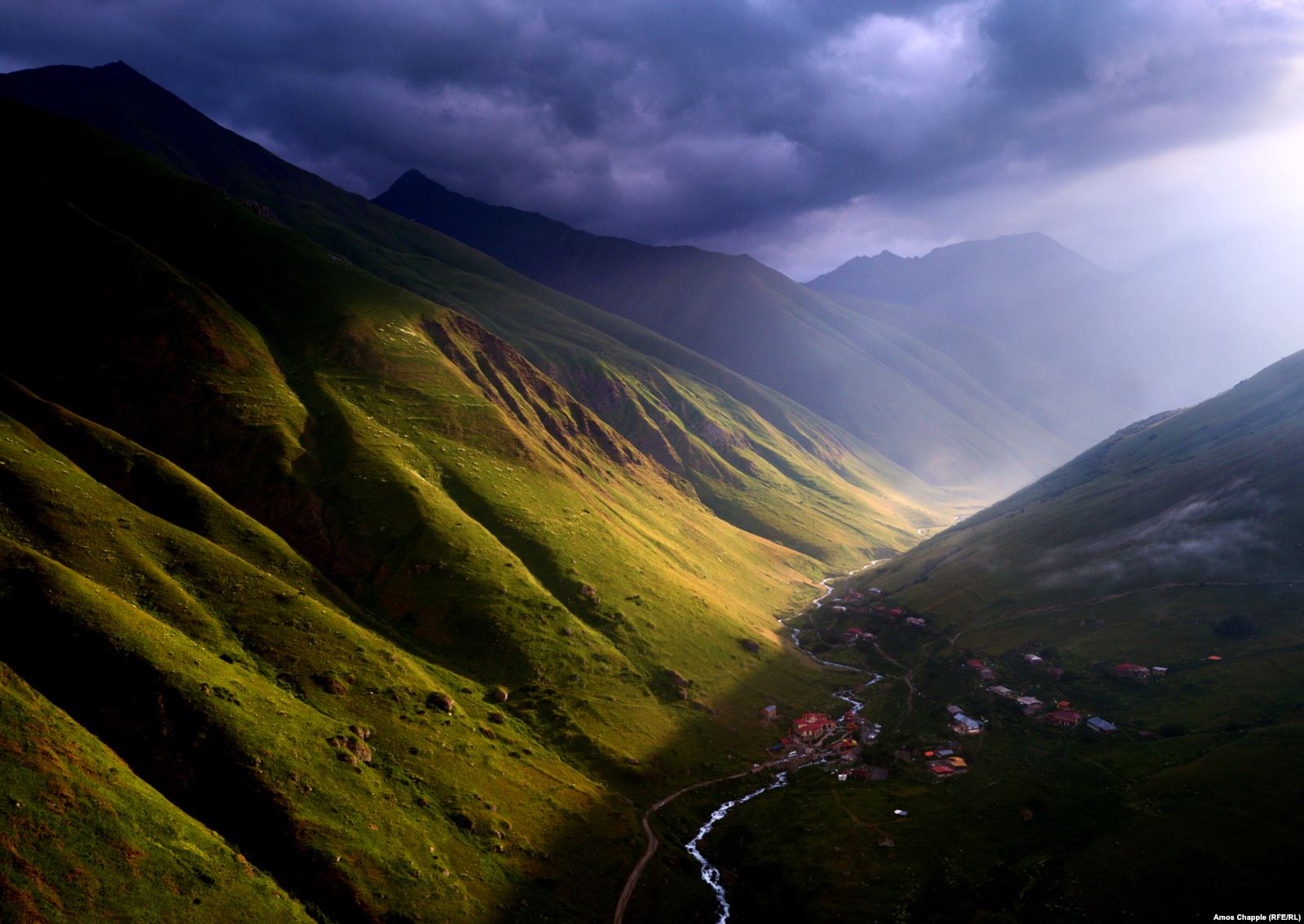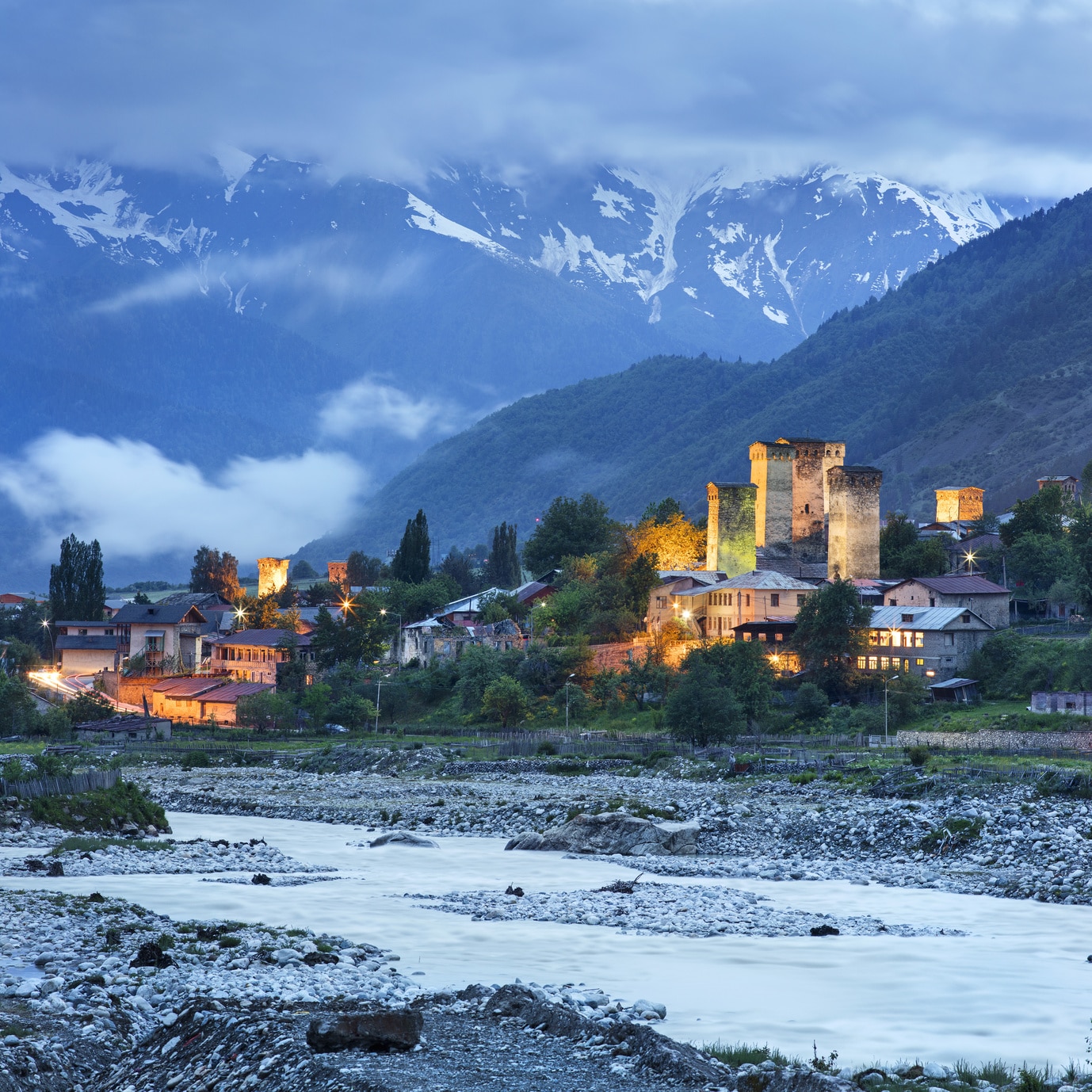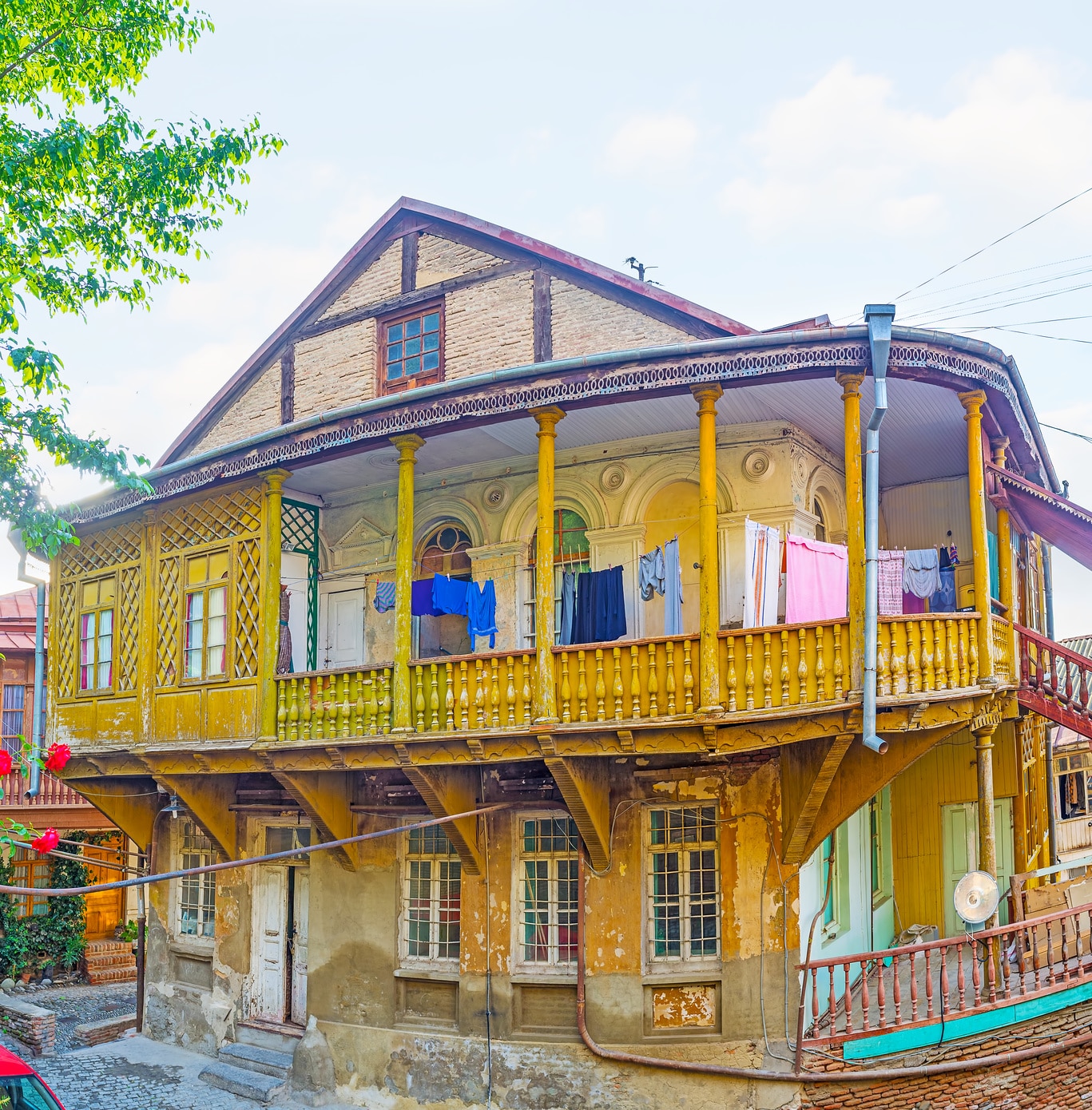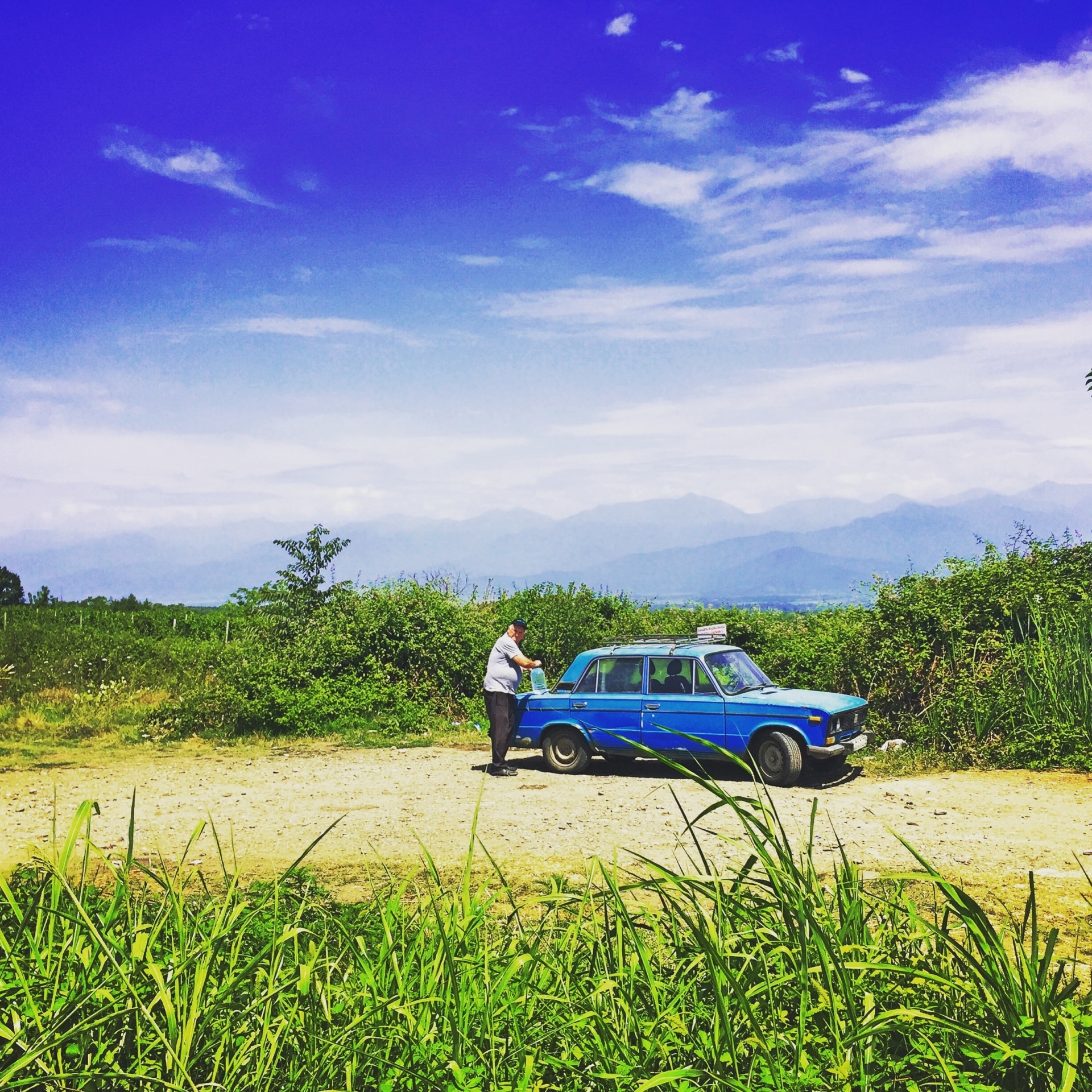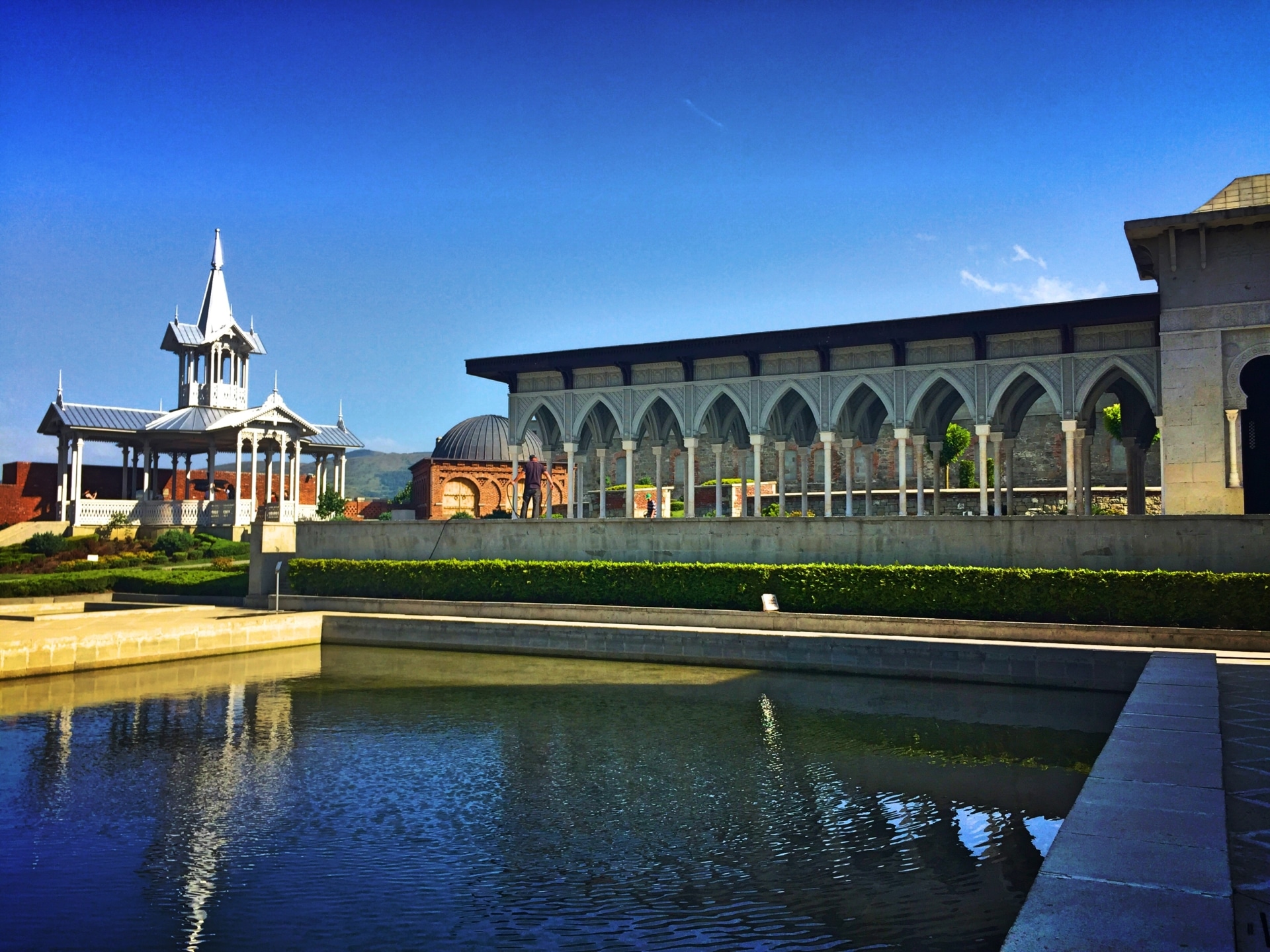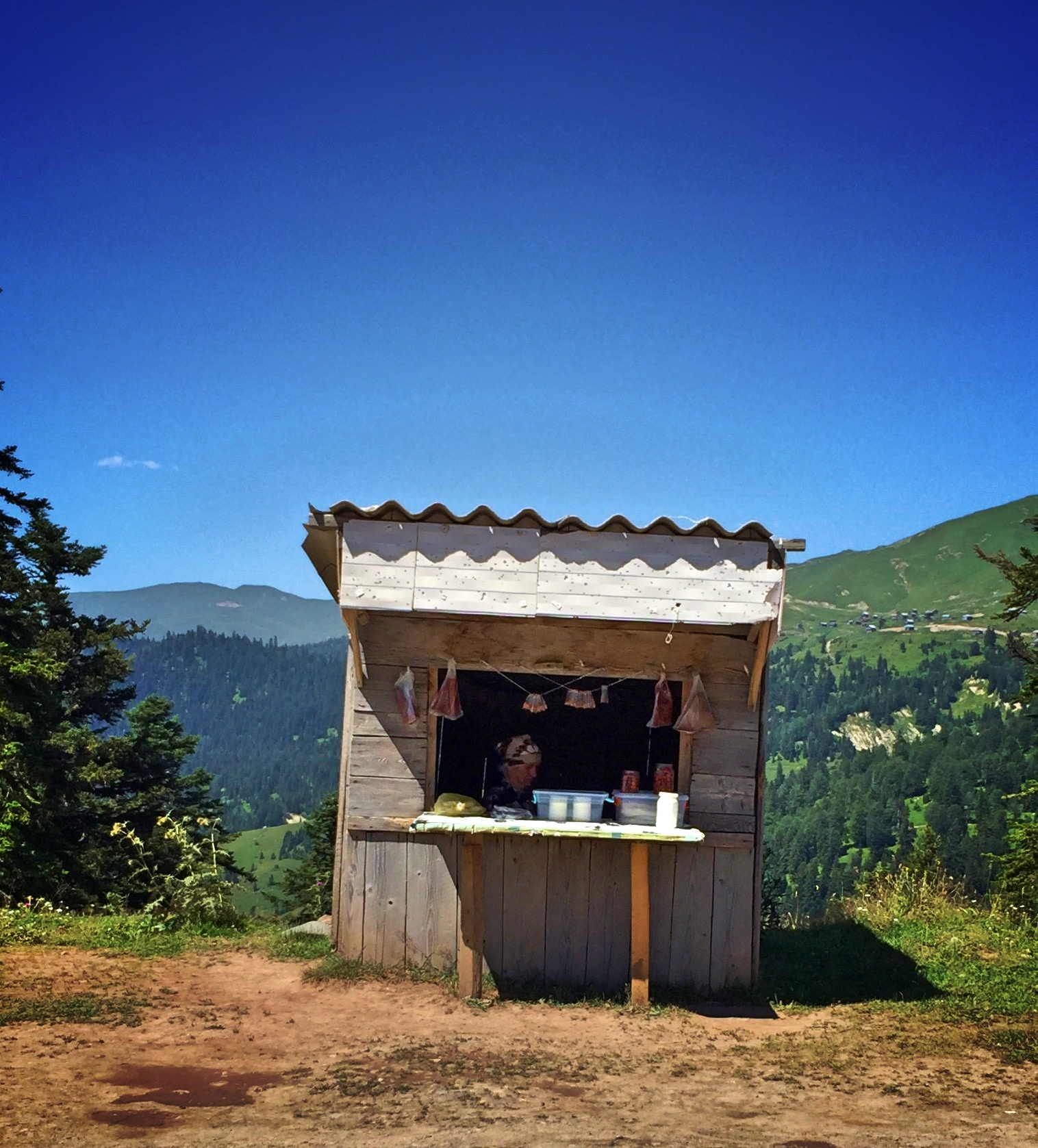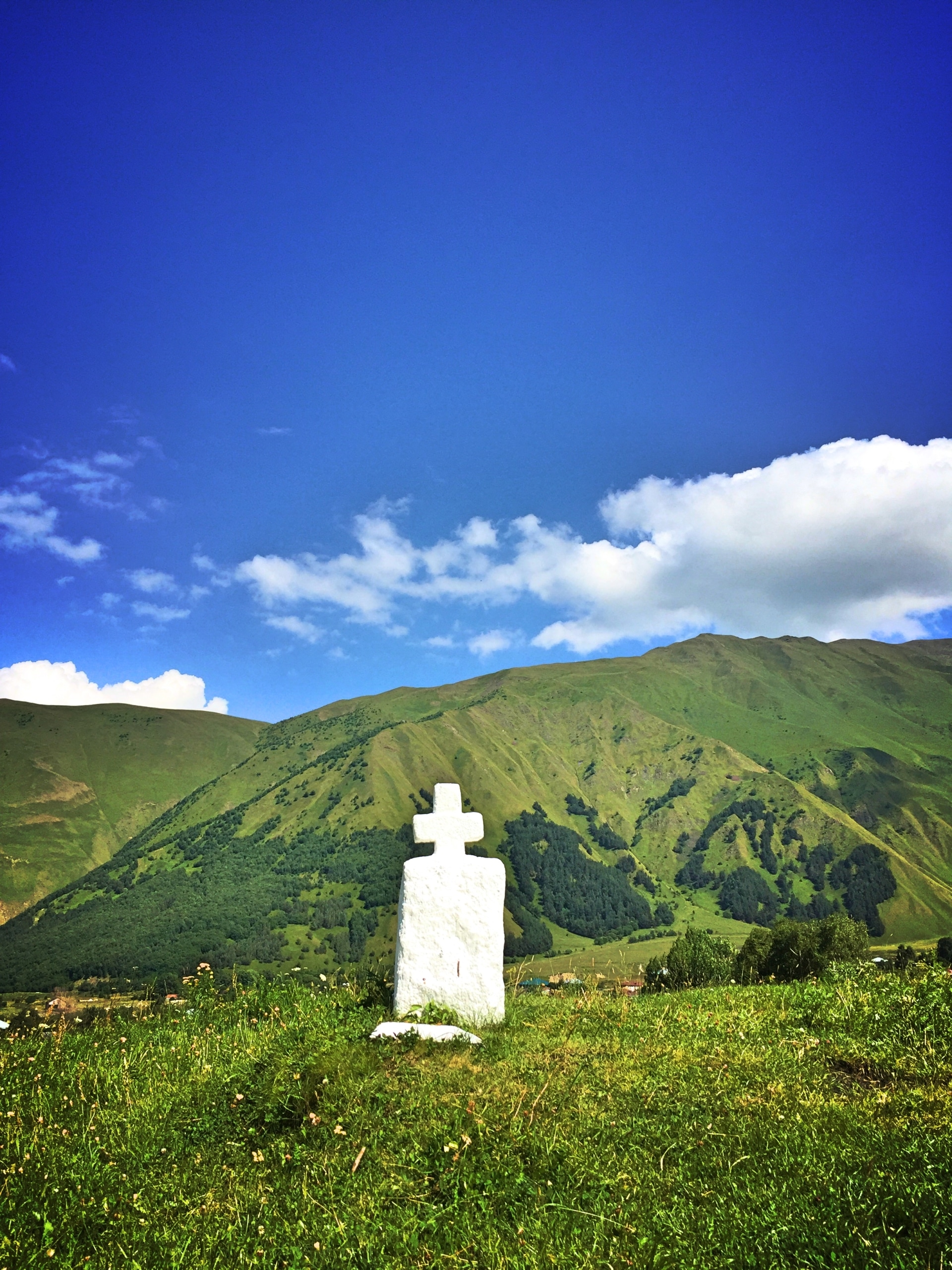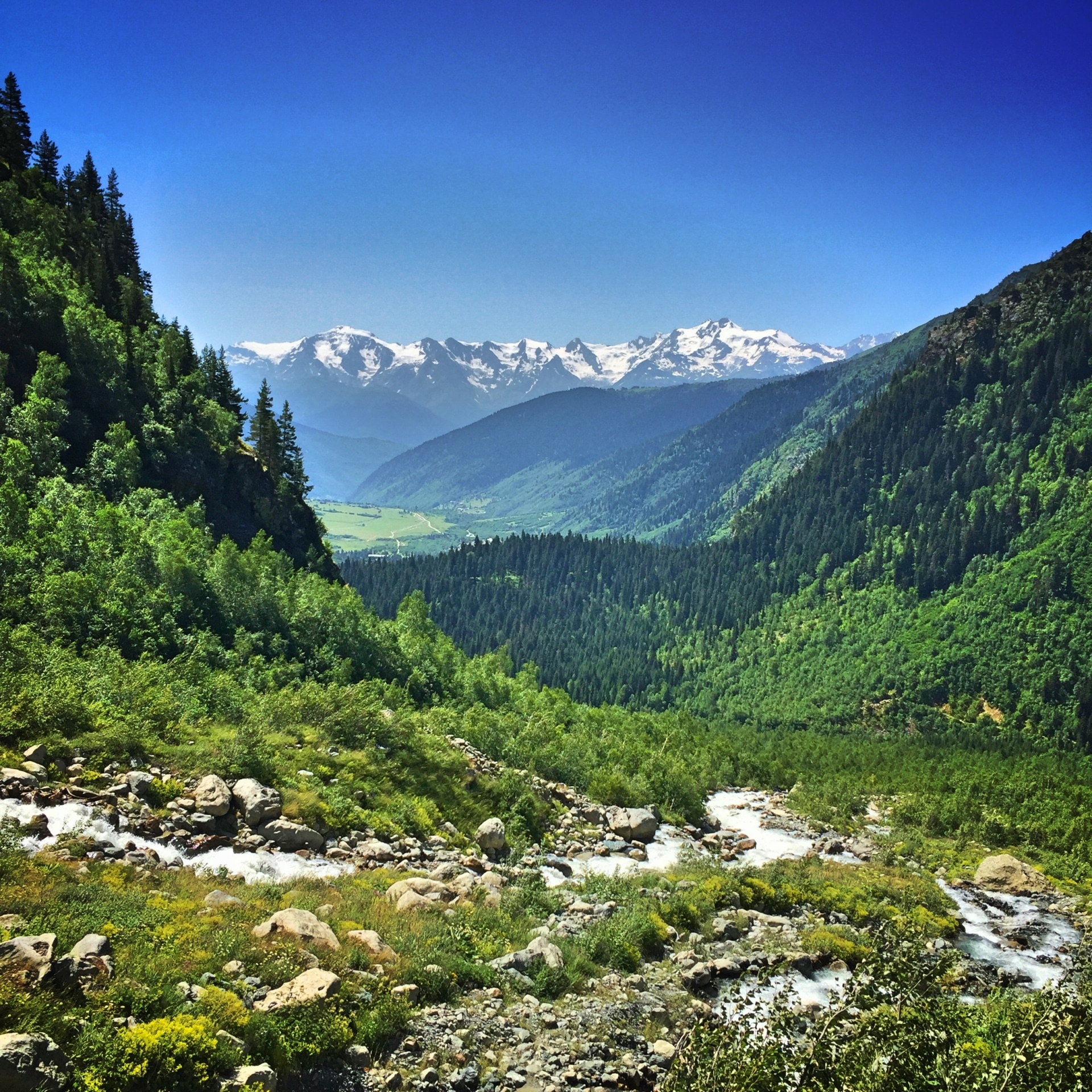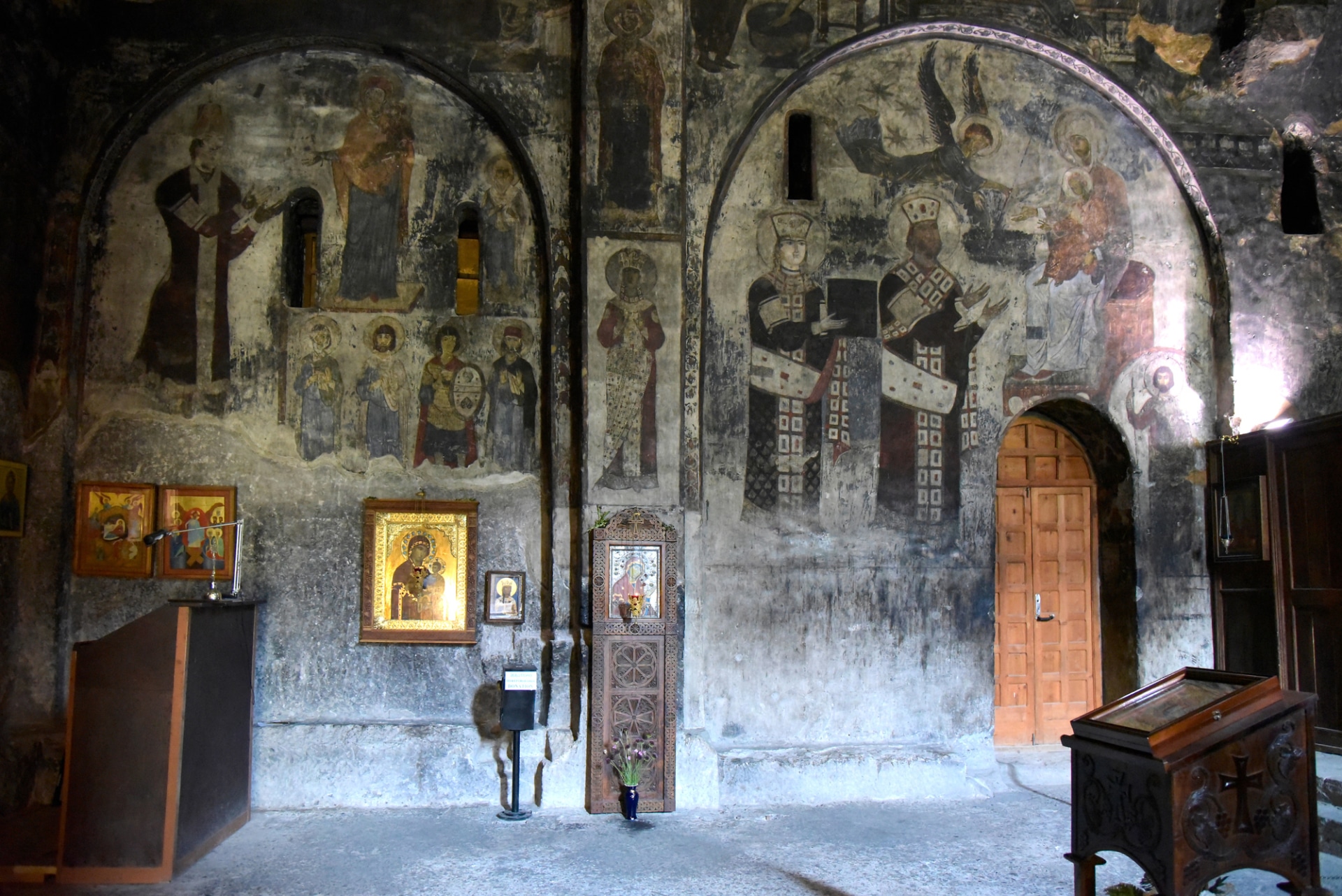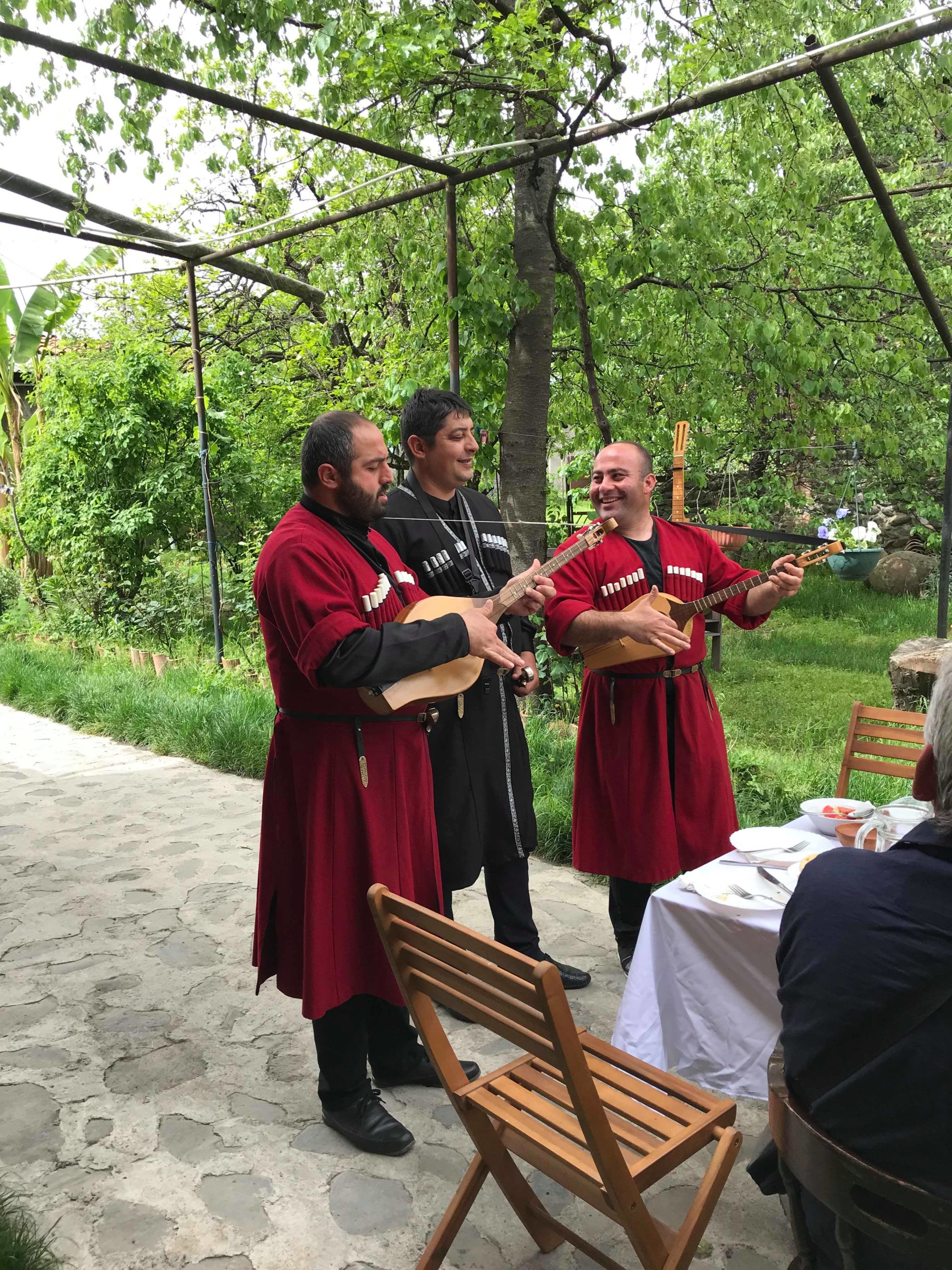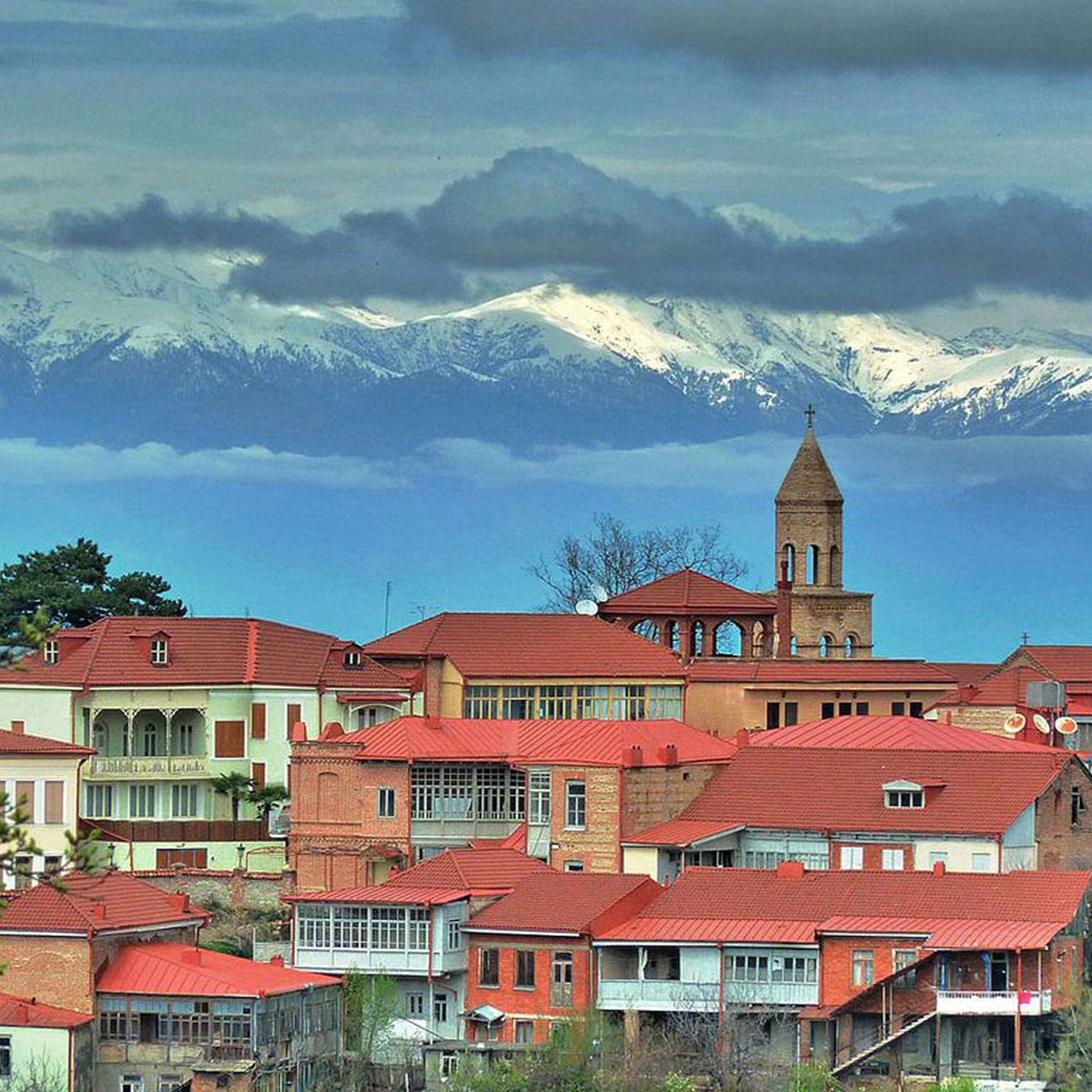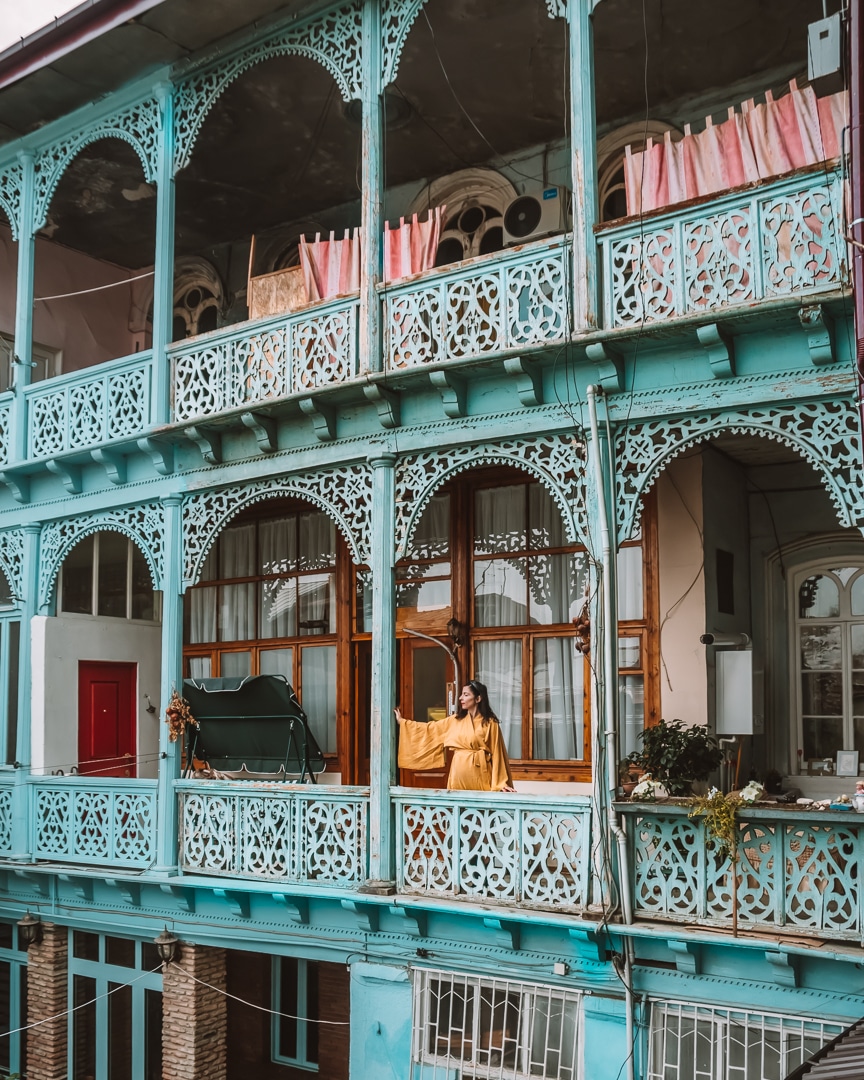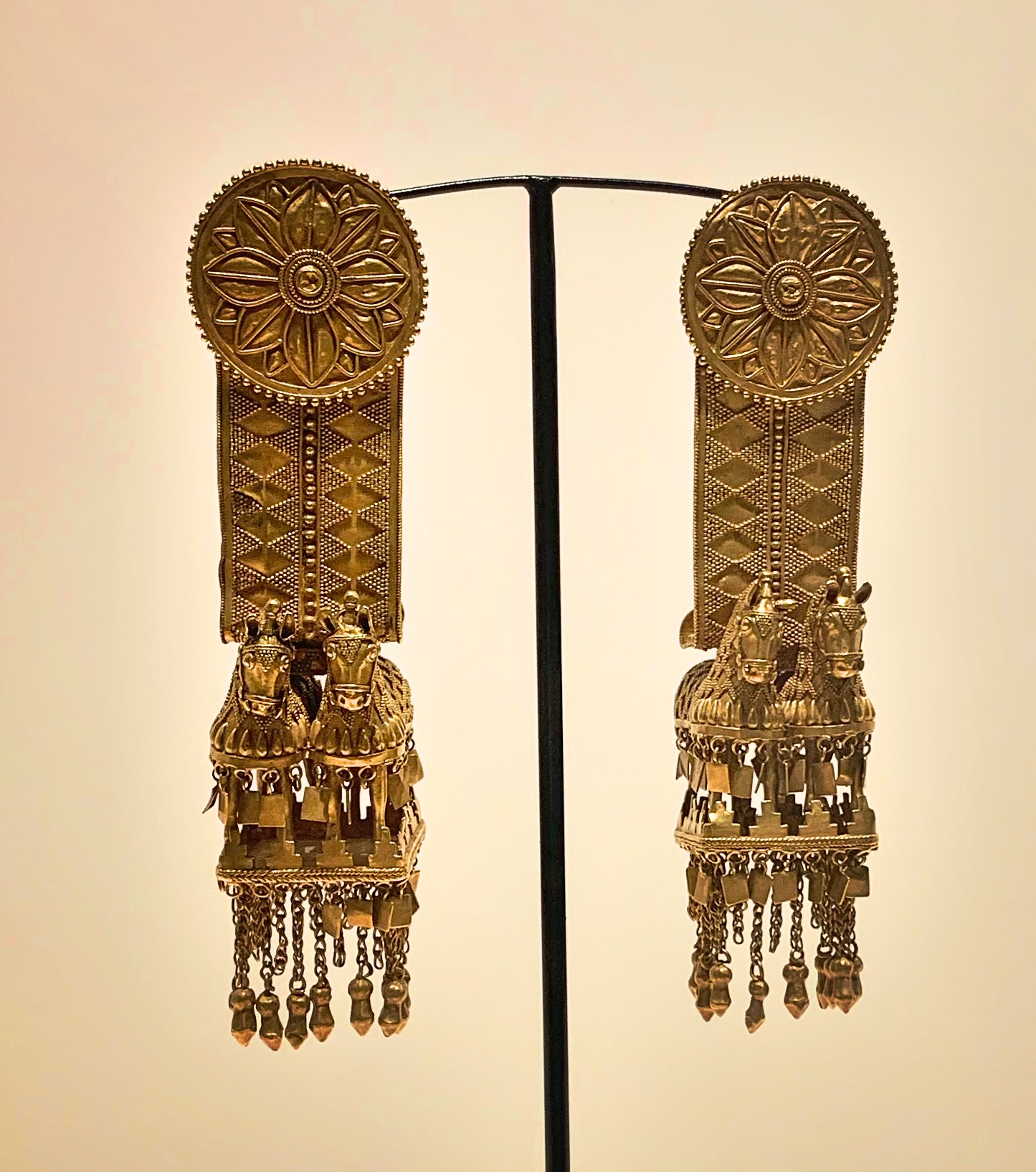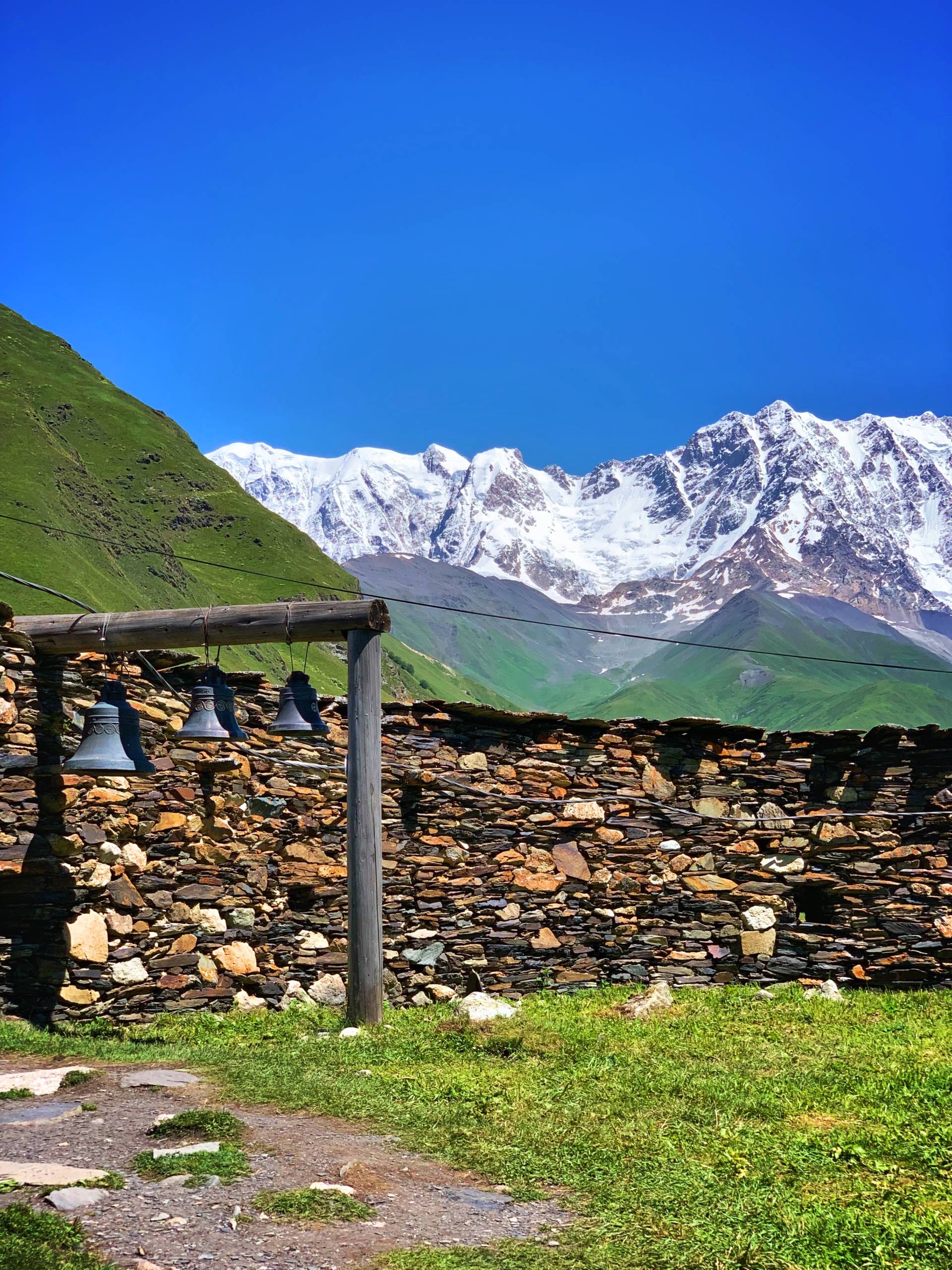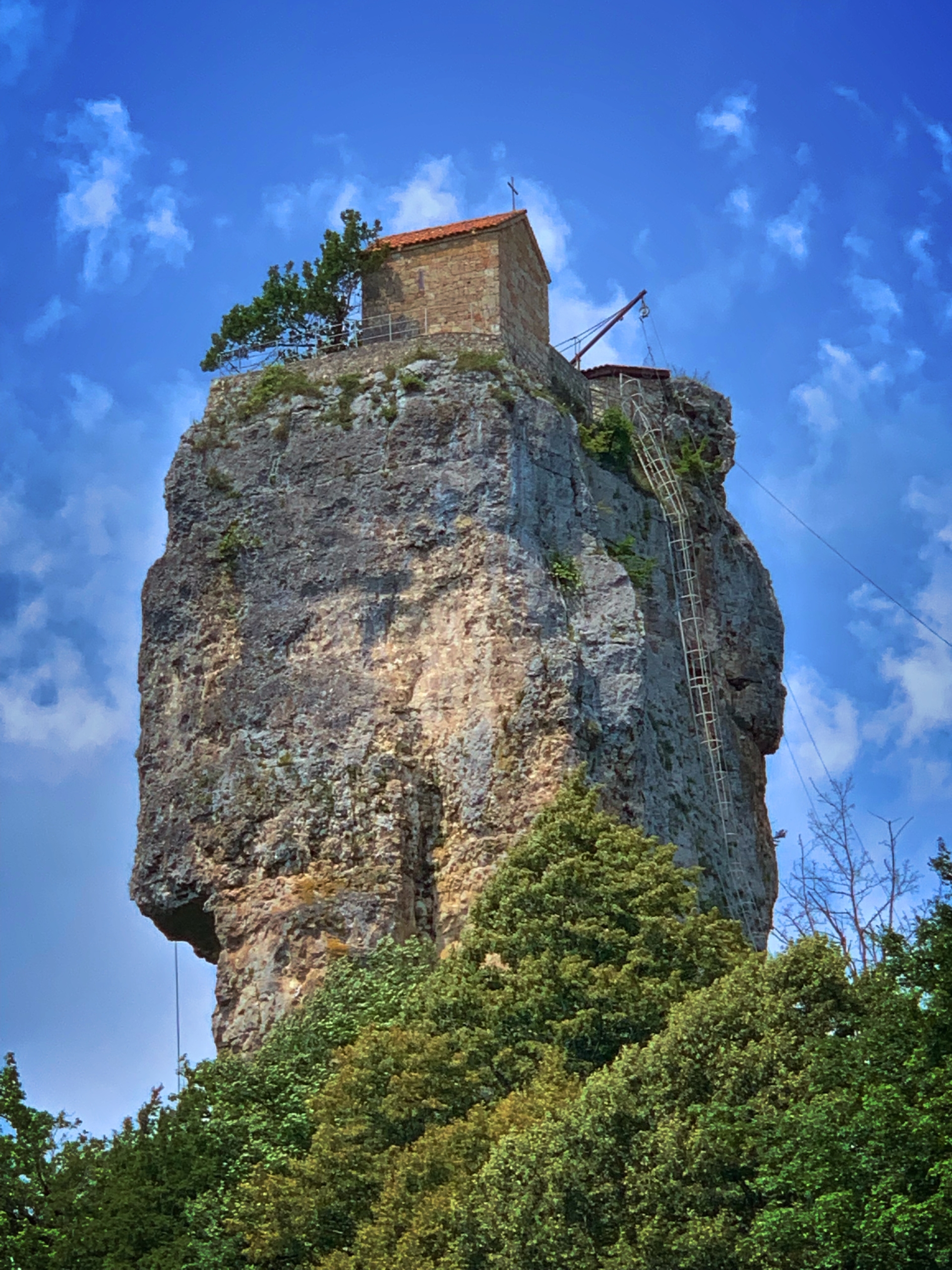SITUATION
Located on the edge of the Black Sea, in the north-east of Turkey, in the south of Russia, in the west of Azerbaijan and in the north of Armenia, a 4h15 flight from Paris or Brussels, the republic parliament of Georgia, the size of Sri Lanka or Ireland (69,700 km²), is Europe’s balcony on Asia. It is populated by around 4 million inhabitants, including a little over a million in the capital Tbilisi, which is located at the latitude of Nice.
LANDMARKS AND CLIMATES
The country is bordered to the north by the Greater Caucasus mountain range with 2 peaks over 5000 meters and by the Lesser Caucasus mountain range to the south. There are agricultural plains in the center and an arid plateau in the southeast. Georgia’s climate is subtropical in the west, Mediterranean in the east, and alpine in the mountains.
HISTORY
Since the exit of man from Africa, the Caucasus has been a real crossroads of migrations, the indigenous peoples have seen many ethnic groups pass and stay, mixing or cohabiting. The oldest hominid outside of Africa was found there (1.8 million years old). Since ancient times, the Scythians and Achaemenids have coveted the territory. First under the influence of the Greeks (the myths of Jason and the Golden Fleece as well as Prometheus are located there), Georgia would later become a province of the Roman Empire before Persian domination which lasted despite some intermittent periods. Christianity was established as the state religion in the year 337. The region underwent several incursions, Byzantine, Arab in the 7th century, Turco-Mongol in the 11th and 13th centuries. Then the domination of the Ottomans in the 17th century created a partition of the country with the Turks to the west (in Colchis) and the Persians to the east (in Iberia). In 1800, the country was annexed by the Russian Empire under Alexander I. A brief republic was created from 1918 to 1921 before annexation to the USSR by the Bolsheviks (the then government went into exile in France in Leuville-sur-Orge). Georgia regained its autonomy in 1991 despite tensions linked to the emancipations of two parts of its territory (Abkhazia and South Ossetia). Since December 2018, a French woman of Georgian origin, Salomé Zourabichvili, has become the president of the country determined to anchor itself in Europe.
WHEN TO GO TO GEORGIA
Overall, from May to October, the climate allows you to explore the country. But for those who love winter sports, the country has 5 ski resorts (88 km of slopes with Heliskiing in Gudauri) from mid-December to mid-April.
The Black Sea coast can be visited all year round with the exception of the rainy months of January and February. The most pleasant months for tours are May, early June, September and early October with temperatures between 24 and 35 degrees (10/15 degrees at night in the mountains). Bring sunglasses, sunscreen, a sweater for the evening and morning and a waterproof jacket just in case. Sites with stones. Ladies should avoid heels and generally smooth soles. All the sites visited are easy to access (except the sites of Vardzia, Ouplistsikhe and the David Gareja monastery – contact us depending on the traveler profile).
FORMALITIES
For European Union nationals: Valid identity card or valid passport
For Canadians: Passport valid for at least 6 months on the return date
For Swiss: Valid passport
TIME DIFFERENCE:
(GMT +4) + 3 hours winter / + 2 hours summer compared to Brussels, Paris, Geneva…
CASH :
The Georgian Lari (GEL): 1 euro = 3 Lari / $1 CAD = 2.10 Lari. You will easily find ATMs. Credit cards are accepted in shops and tourist places. Travelers checks will be of no use to you, so you must bring Lari. Banks are open from 9:30 a.m. to 5:30 p.m. Monday to Friday.
ELECTRICITY :
220 V. European sockets
PHONE :
To call Georgia from France or Belgium, dial 00 995 + the 7-digit number (the area code then the 6 digits of your correspondent). From Georgia to France or Belgium, dial 00 + 33 + the number without the initial 0. In large cities you will find public telephones that work with telephone cards. You can call from post offices. The cellular network works very well provided you have the international plan.
LANGUAGE :
The official language is Georgian but a good part of the population speaks Russian. English is increasingly used by young people.
HEALTH :
There are no specific vaccines for the country but it is better to be up to date with basic vaccines.
Please note, travelers must not bring Dafalgan codeine or other opiates as well as those containing benzodiazepine because these medications are prohibited there. They are considered narcotics in Georgia. If you are arrested for possession of these substances, you will have to spend a few days in detention, wait for your trial and pay a fine (around 2,500 euros). If you absolutely must take Dafalgan Codeine or other opiates with you, do not forget the doctor’s medical certificate and the prescription (call us, we will translate). Also declare to customs when you enter the country that you are in possession of this medicine and other medicines not authorized in Georgia. All opiates are affected. In general, you should not exceed 10 boxes and take the number of pills corresponding to the number of days spent there.
POTABLE WATER :
It is recommended to drink and use bottled water.
SECURITY :
The country is safe, but beware of pickpockets who sometimes operate in Tbilisi.
WHAT TO BRING:
icons, crafts (musical instruments, wine horn, felt dolls, costumes and hats), antiques, and especially wine!
GENERAL INFORMATION:
We draw your attention to the fact that the coffees served in restaurants and hotels are generally “Nescafé” or Turkish coffees. Bring your coffee pods if you can’t do without them!
When visiting religious buildings, scarves are available to cover bare legs.
You may sometimes notice a lack of professionalism but the country is starting to develop tourism and the staff is probably not yet sufficiently trained everywhere, please inform your customers and ask for their indulgence. The fact remains that Caucasian hospitality is real!
GEORGIAN HOLIDAYS
January 1 – New Year
January 7 – Orthodox Christmas
January 19 – Epiphany
March 3 – Mother’s Day
March 8 – International Women’s Day
March 9 – National Unity Day
April – Easter
May 9 – Victory Day
May 12 – Feast of St Andrew
May 26 – Independence Day
August 28 – Dormition of the Virgin
October 14 – Svetitskhoveli Cathedral Day
November 23 – Feast of Saint George


